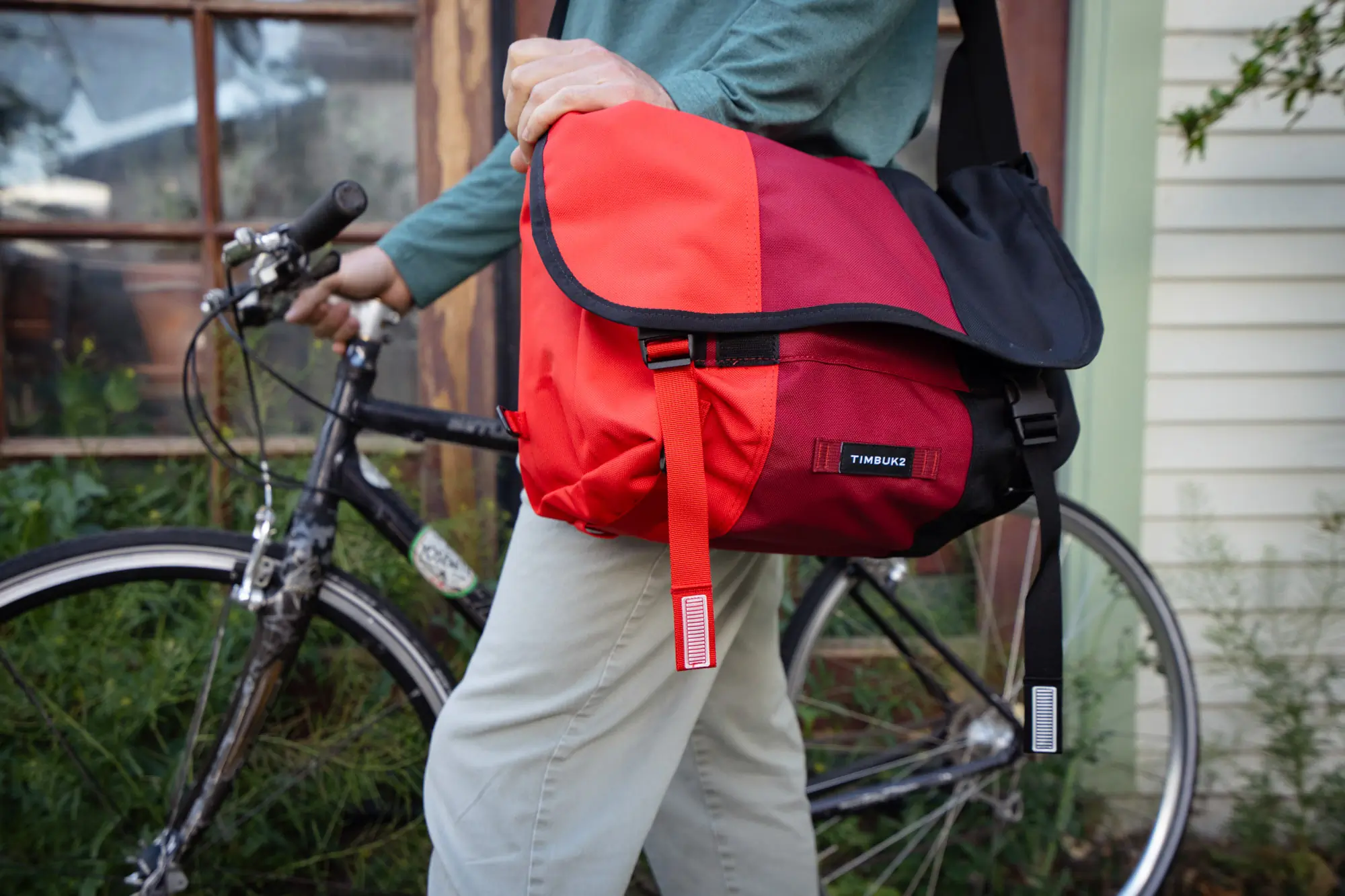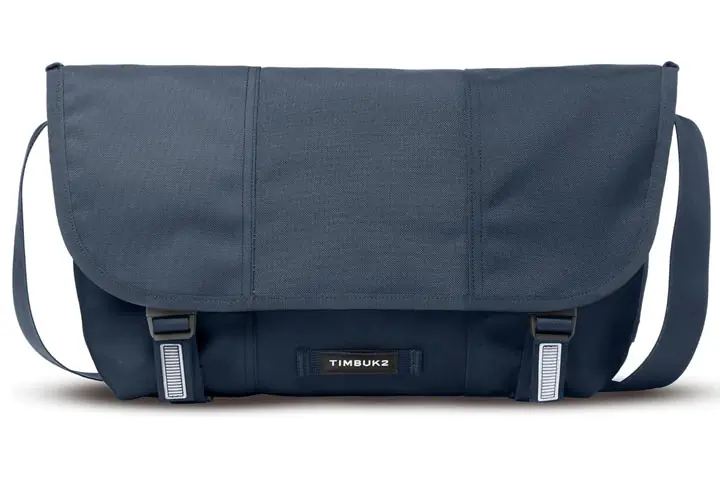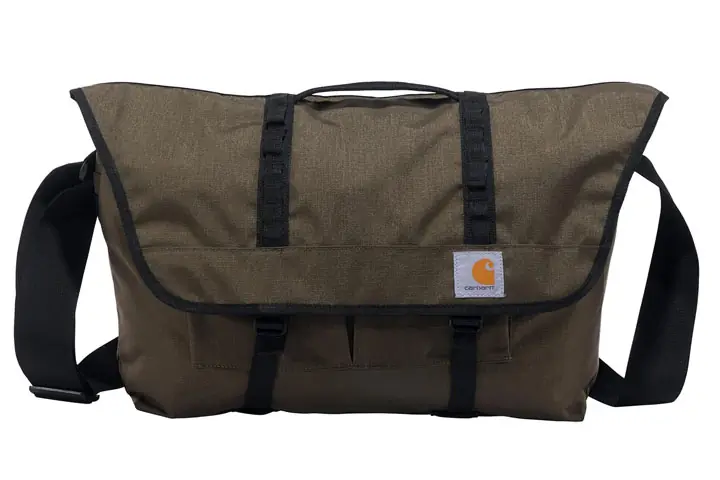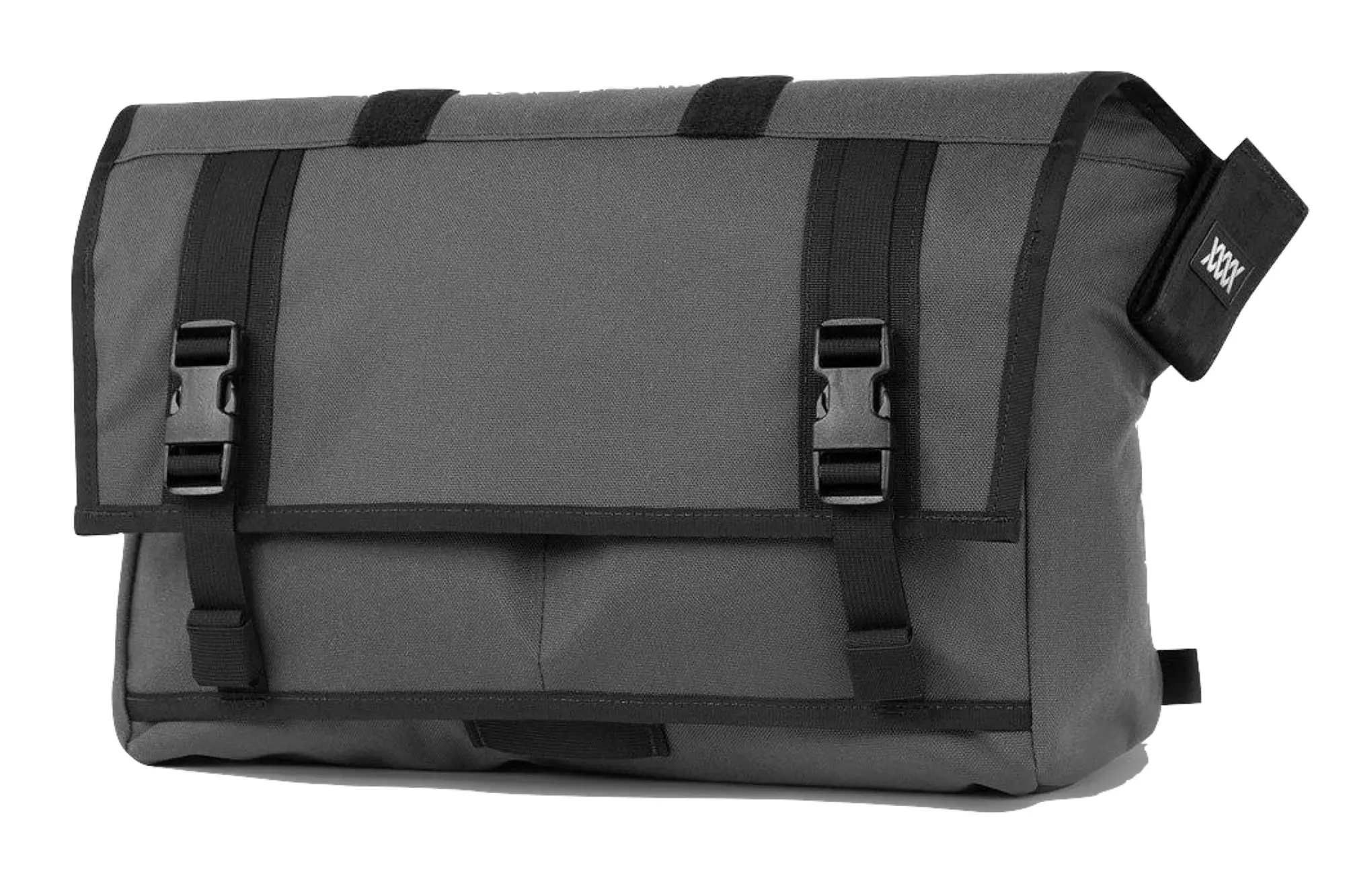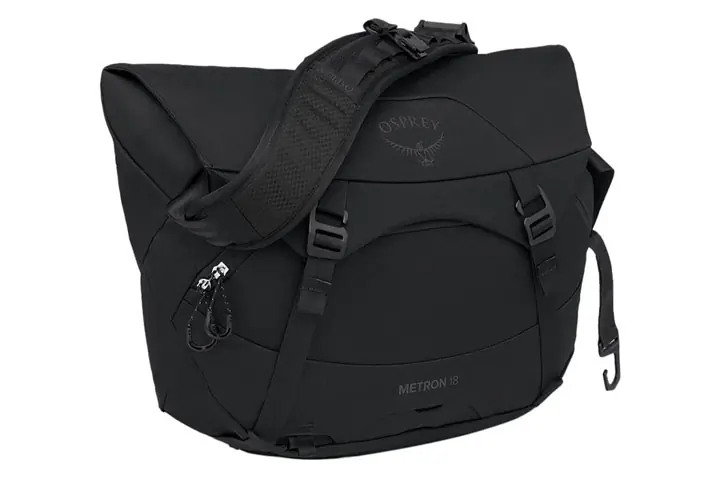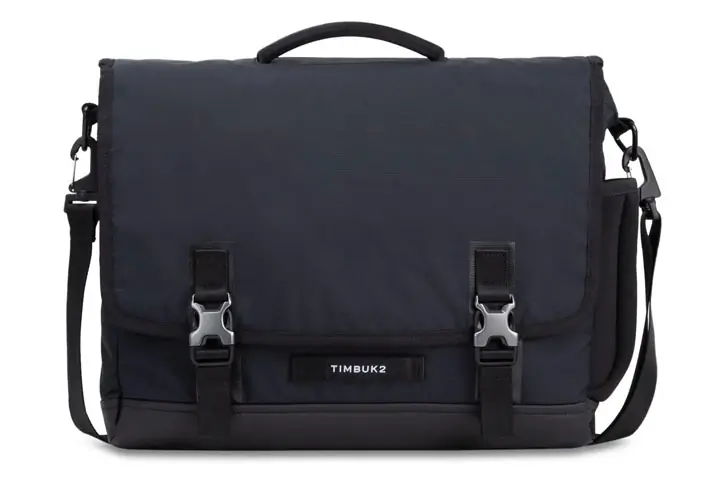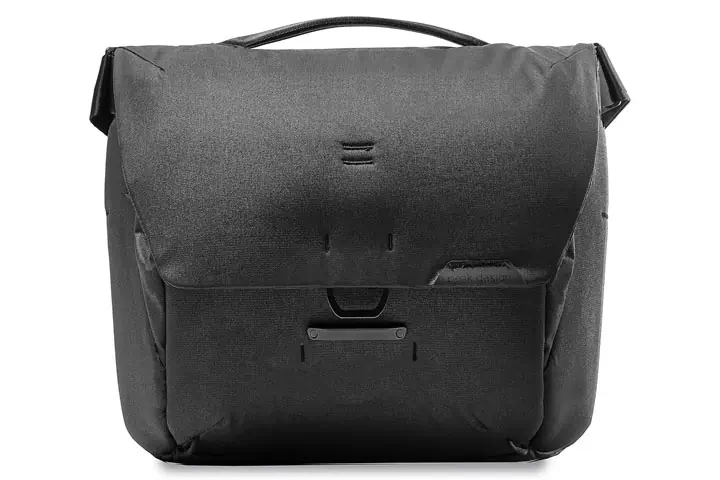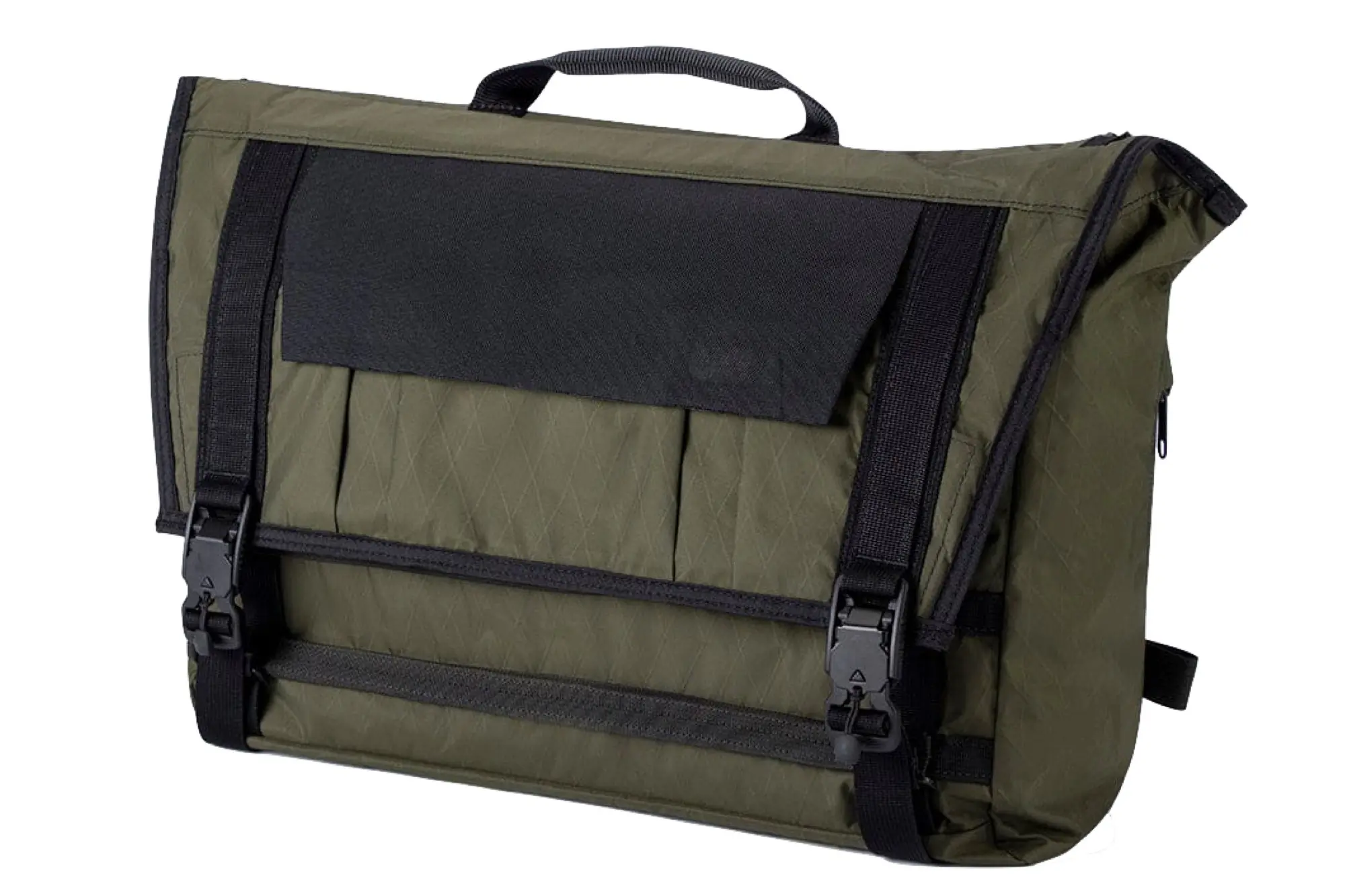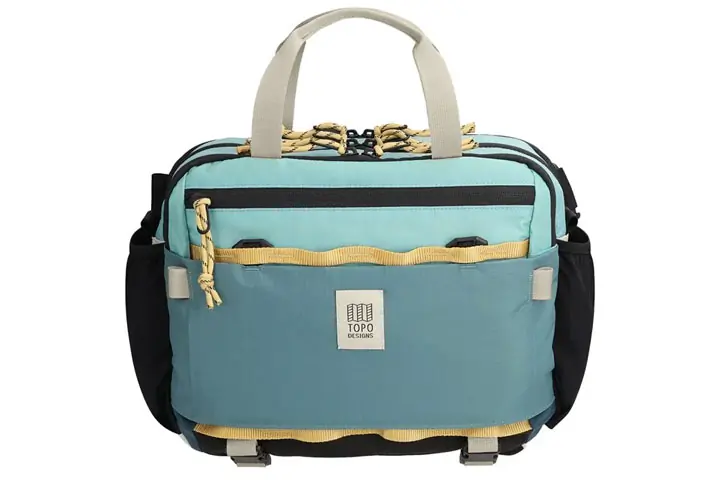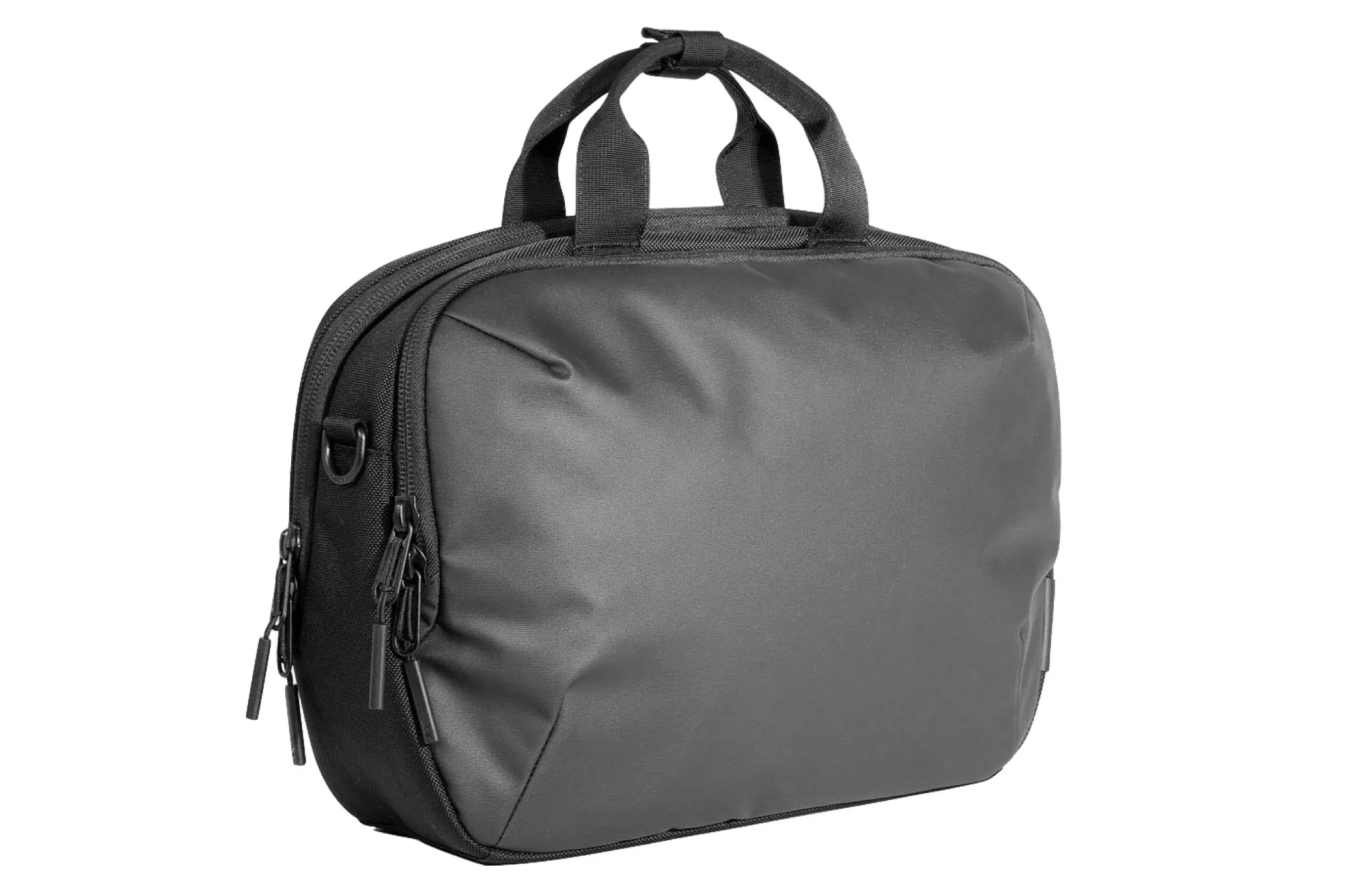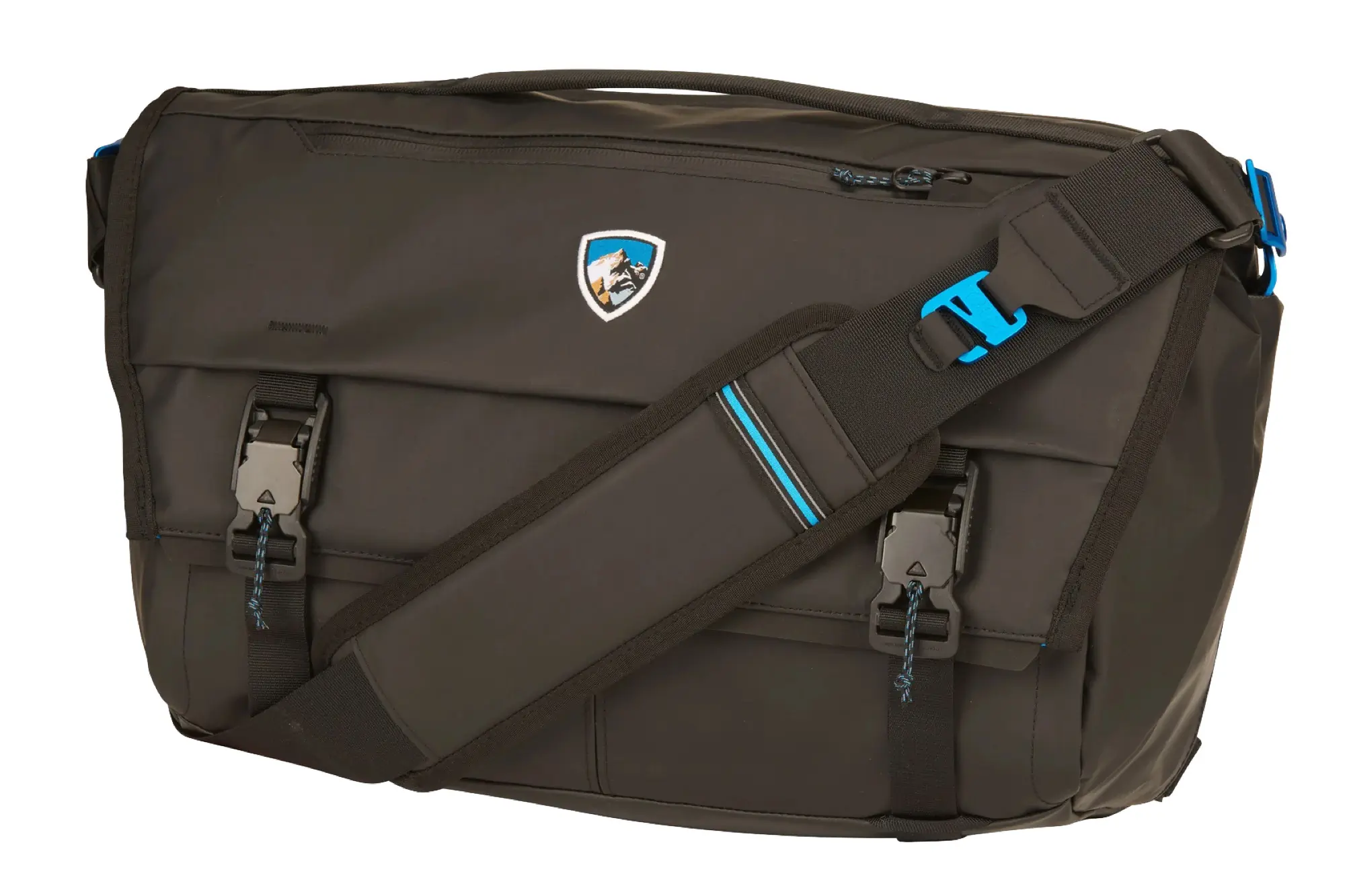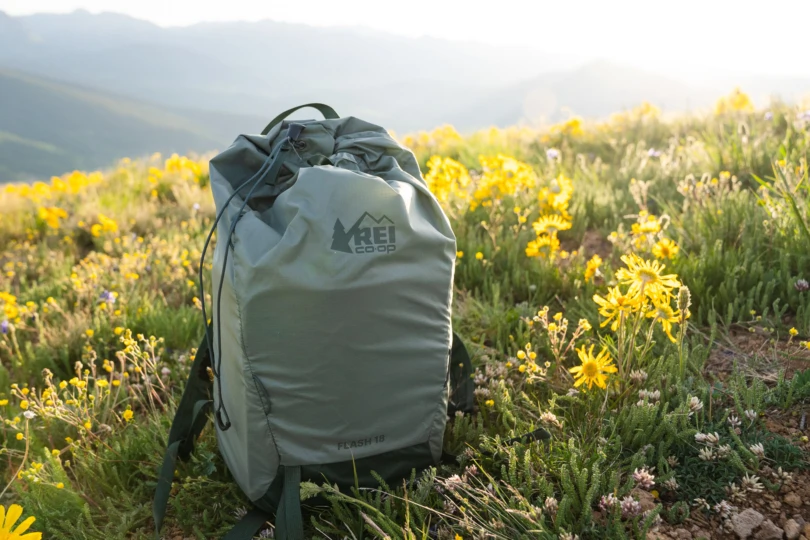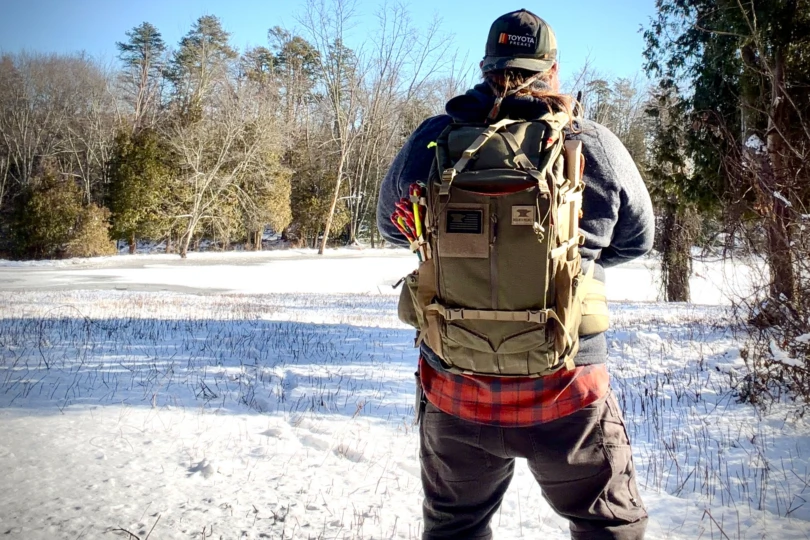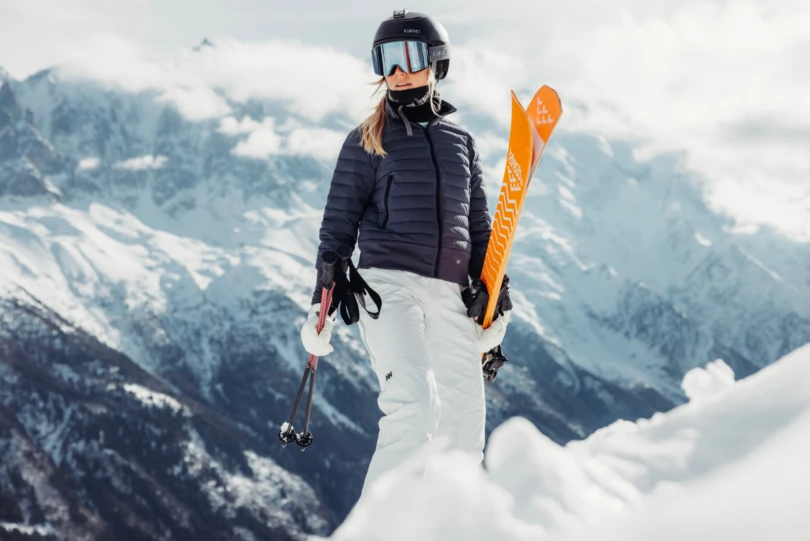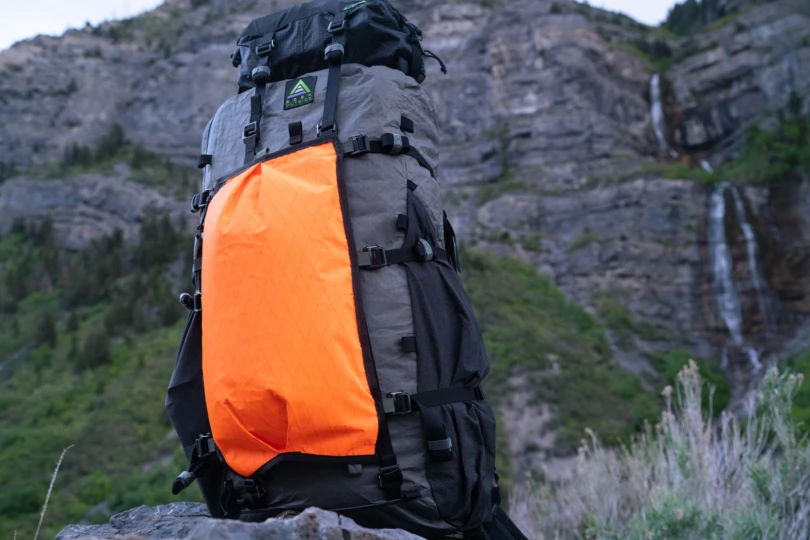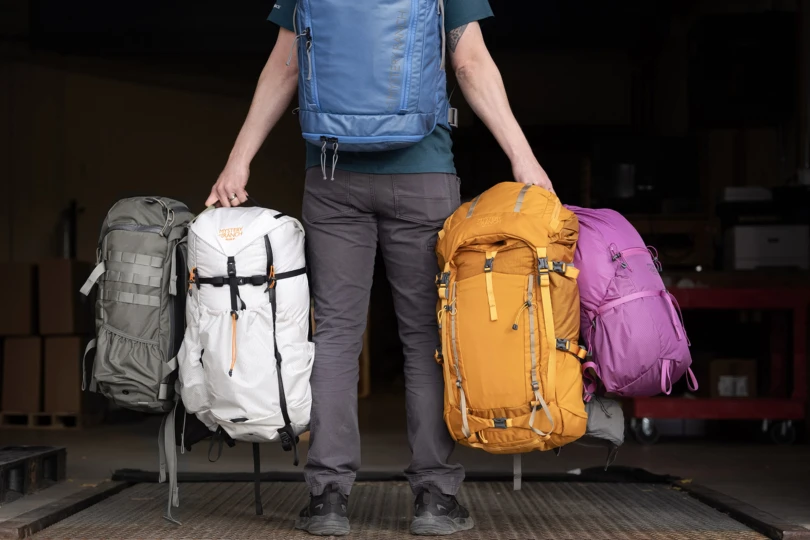More practical than a tote bag and more accessible than a backpack, the best messenger bags continue to be our choice for daily carry. We know it can be overwhelming to have so many different bags for different purposes, and while each of these has a time and a place, the messenger bag combines the best of many.
Our expert gear testers have done all the legwork for you, and have identified 10 of the best messenger bags on the market today and thoroughly tested them for this guide. Whether you’re aiming for a lifetime purchase like the top-pick Timbuk2 Classic or just need something to get you through the next semester, like the Carhartt Messenger Bag, we’ve got options for everyone.
We’ve reviewed these bags for over a year now, from the small town of Bishop, Calif., to commutes in the big city of Los Angeles. We took each of them out on multiple bike rides, loaded them up and walked with them a mile to the local coffee shop, and scrutinized the strengths and weaknesses of their organizational features to help you decide which bag might best suit your needs.
Editor’s Note: We updated our Messenger Bags guide on November 21, 2024, to refine our Price & Value section and add more testing feedback from continued use.
The Best Messenger Bags of 2026
Timbuk2 Classic Messenger Bag
- Volume: 16 L (medium size)
- Material: Eco Cordura, 70D waterproof TPU liner
- Waterproofing: Yes
- Weight: 2 lbs., 3.2 oz. (medium size)
- Dimensions: 13.4” x 7.28” x 12.8”
Pros
- Comfortable and easily-adjustable shoulder strap
- Many organizational features
- Water-resistant
- Affordable
Cons
- Can get front heavy
- Internal water bottle holders can take up a lot of interior space
Carhartt Messenger Bag
- Volume: N/A
- Material: 500-denier Cordura ripstop nylon with Rain Defender durable water repellant
- Waterproofing: Yes
- Weight: N/A
- Dimensions: 18.25” x 12.5” x 7”
Pros
- Affordable
- Just enough organizational features
- Padded laptop compartment
- Durable materials
Cons
- Lacks structure
- Lacks additional padding
- Utilitarian style
Mission Workshop Monty
- Volume: 21 L
- Material: 1000D nylon
- Waterproofing: Yes
- Weight: 2 lbs., 12 oz.
- Dimensions: 16” x 10” x 5”
Pros
- Spacious capacity
- Comfortable padded shoulder strap
- Weatherproofing
- High quality materials
Cons
- Pricey
- Large for the average daily driver
Osprey Metron 18 Messenger
- Volume: 18 L
- Material: 500D nylon, DWR finish
- Waterproofing: Yes
- Weight: 2 lbs., 3.2 oz.
- Dimensions: 7” x 18.9” x 11.8”
Pros
- Made to comfortably carry while riding
- Padded strap
- Comes with additional rain cover
Cons
- Can’t customize strap to right or left shoulder
- Smaller size
Timbuk2 Closer Laptop Briefcase
- Volume: 10 L
- Material: 100% recycled nylon
- Waterproofing: Yes
- Weight: 2 lbs., 3.2 oz.
- Dimensions: 13” x 15.4” x 3.1”
Pros
- Sleek design
- High quality, recycled materials
- Versatile
Cons
- Laptop sleeve only fits up to 15” device
- Small capacity
Peak Design Everyday Messenger
- Volume: 13 L
- Material: 400D outer, DWR finish, 900D waterproof bottom liner
- Waterproofing: Yes
- Weight: 2 lbs., 3.2 oz.
- Dimensions: 14.2” x 15.5” x 7.5”
Pros
- Made for photographers
- Internal customizable dividers
- Stiff which makes it easy to get in and out of
Cons
- Doesn’t come with a rain cover
- Can feel bulky for an everyday carry
- On the pricier side
Other Shoulder Bags to Carry Your Kit
Our top picks in messenger bags are the ones we lean on the most for our bike commuting, but there are plenty on the market that do it almost as well. While they aren’t our top picks, the following four packs are excellent options to consider.
- Volume: 24 L
- Material: HT500 nylon outer, MultiCam Black Cordura, VX-21
- Waterproofing: Yes
- Weight: 2 lbs., 9.9 oz.
- Dimensions: 21” x 14” x 6”
Pros
- Two-layer waterproof construction
- Thoughtful organizational features
- Ability to add additional tech pouches/accessories
Cons
- Expensive
- Can get heavy
- Must purchase better shoulder strap for increased comfort
- Volume: 17 L
- Material: 200D nylon upper, 1000D lower,
- Waterproofing: No
- Weight: 1 lb., 8 oz.
- Dimensions: 15” x 11.5” x 4”
Pros
- Lots of organizational features
- Colorful
- Padded laptop sleeve
- Customizable straps
Cons
- Small, slim profile
- Not made to carry bulky items
- Style might not be for everyone
- Volume: 16 L
- Material: 840D nylon face, 1680D Cordura ballistic nylon side exteriors
- Waterproofing: No
- Weight: 2 lbs., 9.6 oz.
- Dimensions: 16” x 12.2” x 6.2”
Pros
- Sleek and sophisticated look
- Can carry briefcase style or as a shoulder bag with removable strap
- Feels spacious for only 16-liters
Cons
- Shoulder strap is not adjustable
- Not the most bike-savvy pack
- Volume: 14 L
- Material: Waterproof, TPU-laminated nylon
- Waterproofing: Yes
- Weight: N/A
- Dimensions: 17.5” x 6.5” x 11.5”
Pros
- Rugged
- High-quality
- Water-resistant
- Great padding for laptop protection and back comfort
Cons
- On the smaller side
- Expensive
Messenger Bag Comparison Chart
| Messenger Bag | Price | Volume | Material | Weight | Dimensions |
|---|---|---|---|---|---|
| Timbuk2 Classic Messenger Bag | $130 | 16 L | Eco Cordura, 70D waterproof TPU liner | 2 lbs., 3.2 oz. | 13.4” x 7.28” x 12.8” |
| Carhartt Messenger Bag | $75 | N/A | 500-denier Cordura ripstop nylon with Rain Defender durable water repellant | N/A | 18.25” x 12.5” x 7” |
| Mission Workshop Monty | $220 | 21 L | 1,000D nylon | 2 lbs., 12 oz. | 16” x 10” x 5” |
| Osprey Metron 18 Messenger | $120 | 18 L | 500D nylon, DWR finish | 2 lbs., 3.2 oz. | 7” x 18.9” x 11.8” |
| Timbuk2 Closer Laptop Briefcase Bag | $159 | 10 L | 100% recycled nylon | 2 lbs., 3.2 oz. | 13” x 15.4” x 3.1” |
| Peak Design Everyday Messenger | $230 | 13 L | 400D outer, DWR finish, 900D waterproof bottom liner | 2 lbs., 3.2 oz. | 14.2” x 15.5” x 7.5” |
| Mission Workshop Khyte | $390 | 24 L | HT500 nylon outer, MultiCam Black Cordura, VX-21 | 2 lbs., 9.9 oz. | 21” x 14” x 6” |
| Topo Designs Mountain Cross Bag | $130 | 17 L | 200D nylon upper, 1000D lower | 1 lb., 8 oz. | 15” x 11.5” x 4” |
| Aer Commuter Tech Brief | $159 | 16 L | 840D nylon face, 1680D Cordura ballistic nylon side exteriors | 2 lbs., 9.6 oz. | 16” x 12.2” x 6.2” |
| KÜHL Eskape Messenger | $249 | 14 L | Waterproof, TPU-laminated nylon | N/A | 17.5” x 6.5” x 11.5” |
How We Tested the Best Messenger Bags
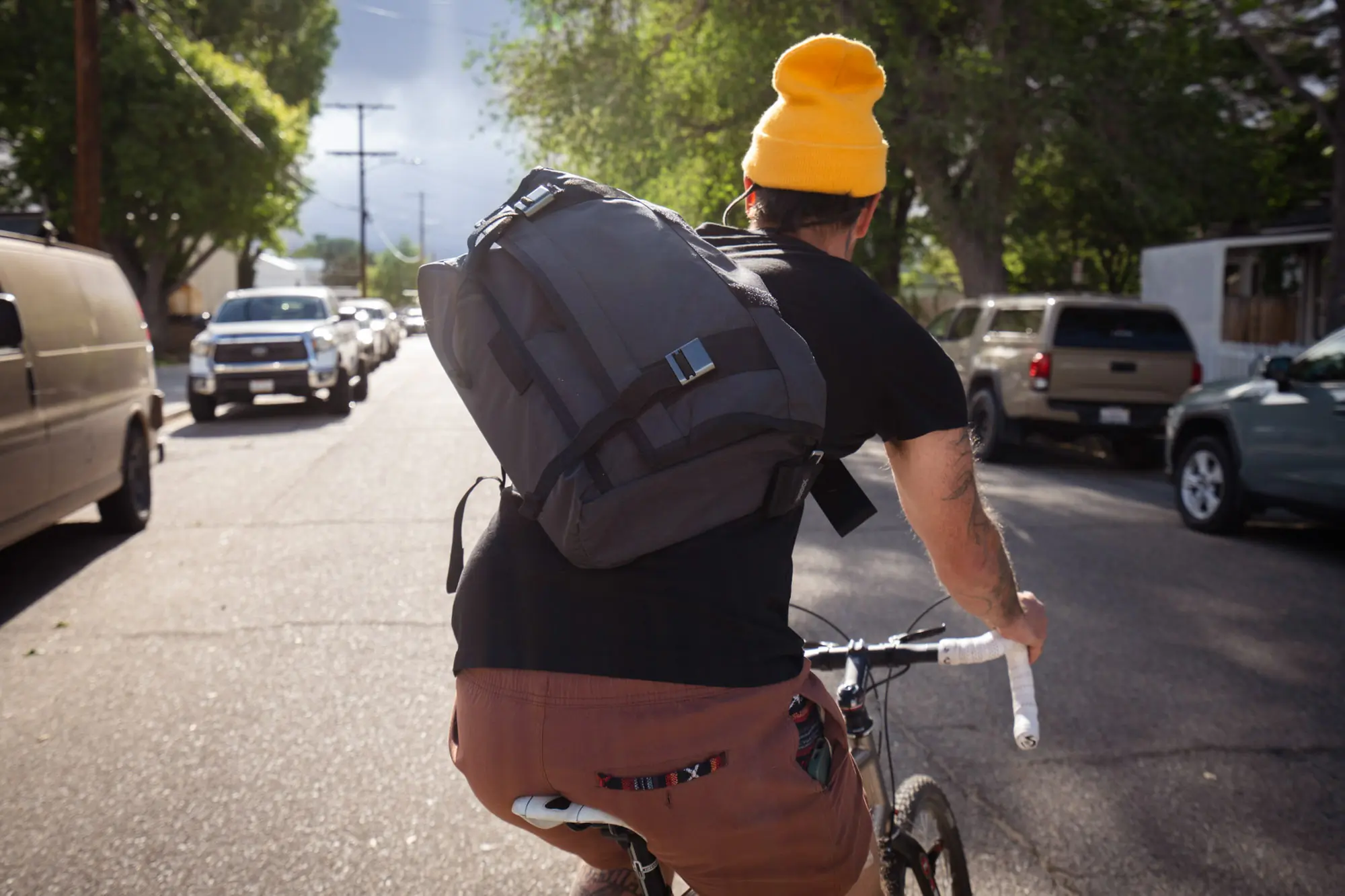
Our Expert Testers
Our GearJunkie testers are avid commuters, with decades of combined experience traveling via bike, train, bus, and plane. From the city streets of Los Angeles to the mountain town of Bishop, Calif., our testers have covered a lot of ground with these messenger bags and know what to look for in a good one.
From flying frequently around the country for work, to biking daily to coffee shops in her small town, our lead tester, Miya Tsudome, has had over two decades of hands-on experience with messenger bags, her go-to choice from college until now. She uses a messenger bag for her daily carry and also has a messenger bag for her photography equipment.
Our Testing Process and Testing Grounds
Miya tested this fleet of bags over the course of a month, making sure to carry each with a full load for a bike commute of four miles roundtrip, walked to many coffee shops and ran errands around town, and carefully evaluated their organization, weatherproofing capabilities, and quality of their design.
Though no one bag “has it all,” there are many high-quality bags to choose from, and some that may fit your needs better than others. Are you looking for a classic messenger bag to take on a bike commute? Or a more casual shoulder bag for taking the train to the office? Are you looking for something sleek enough for the office or rugged enough to stand up to some weather?
It’s worth considering how large your laptop is and making sure the bag you choose is compatible. Also, consider the general volume of the bag depending on how much you plan to carry. And if you are the type to pack a lot, maybe consider a backpack so you don’t hurt your shoulders.
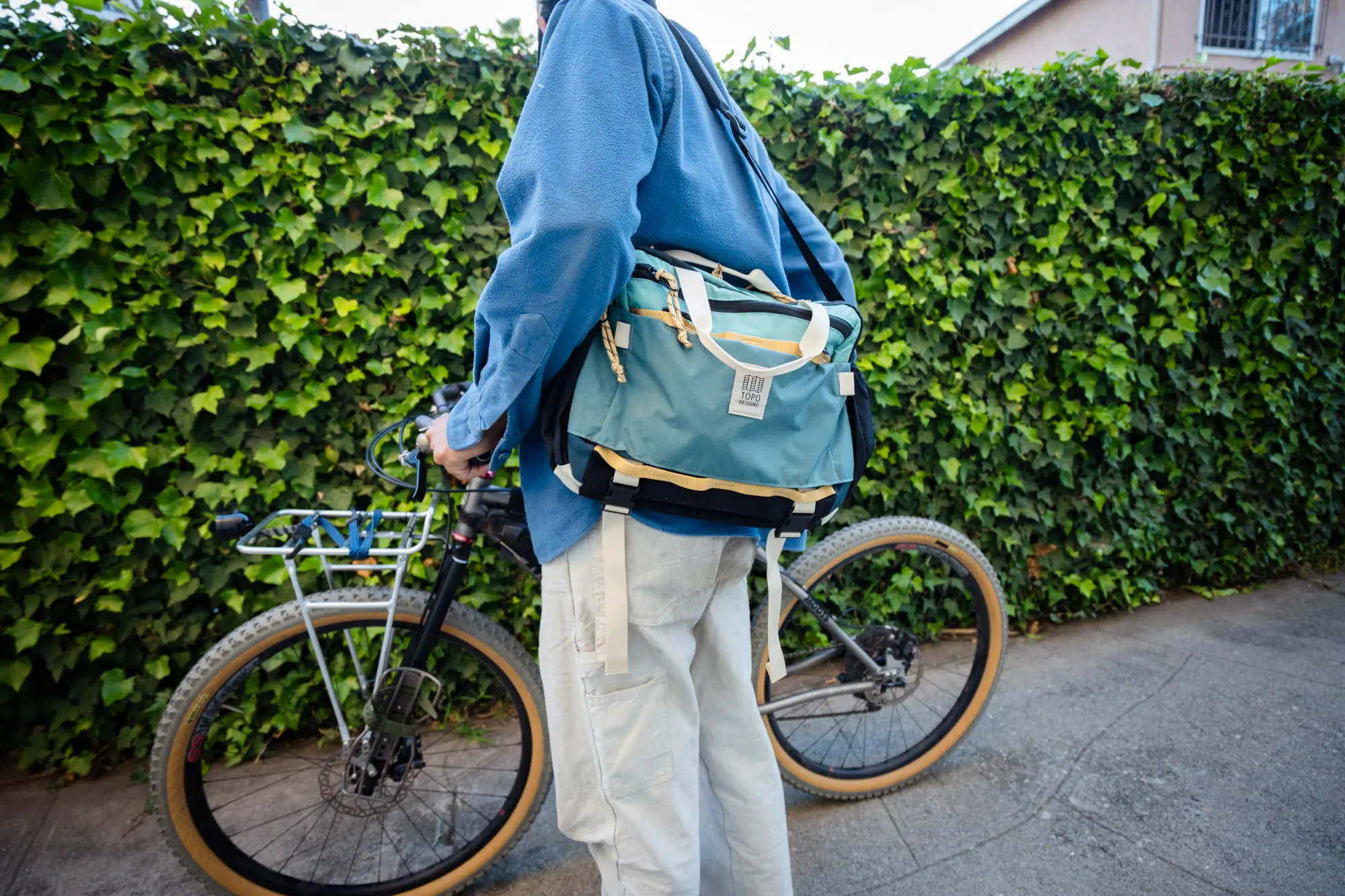



Buyer’s Guide: How to Choose a Messenger Bag
Comfort
Comfort is an important metric when evaluating a bag that you’ll likely be carrying a lot — from home to office, through airports and train commutes, and beyond. The biggest indicator of a bag’s comfort is in the construction of its strap and its carry style. If you’re after a pack that’s in it for more of the long haul, check out our Best Travel Backpacks guide.
Carry Style
Traditionally, a messenger bag is meant to be carried in a crossbody style. With roots in bike messenger travel, these bags have straps that will sling over one shoulder with the bag orientated diagonally across your back. This allows the bag to stay closer to your center of gravity while riding, and won’t get in the way, much like a backpack.
The Timbuk2 Classic, Osprey Metron 18, Mission Workshop Monty, and Mission Workshop Khyte are examples of this classic messenger bag carry style. We think that this carry style is conducive to more comfort, as they often have larger, padded straps and the diagonal orientation high up on your torso provides better weight distribution and is less likely to cause sore shoulders.
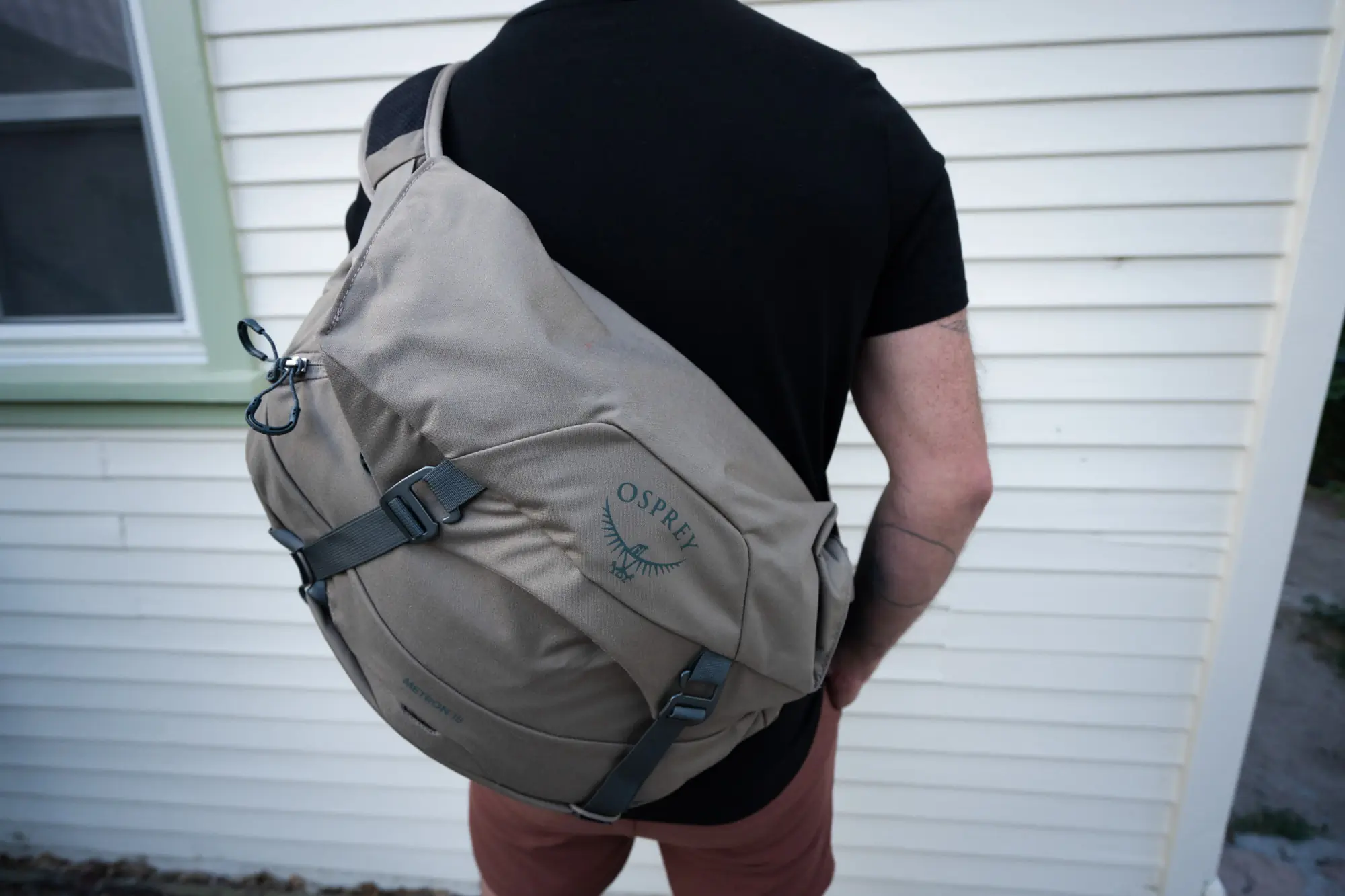



The other carry style is a regular shoulder strap that causes a bag to fall at the hips. You can wear these bags crossbody, of course, but the bag will stay in a horizontal position lower on your torso. Examples of this are the Timbuk2 Closer Laptop Briefcase, Peak Design Everyday Messenger, and Aer Commuter Tech Brief.
Some folks may not want the more specialized look of the traditional messenger bag and opt for this more casual shoulder strap style of carrying. When loaded up, however, these bags can get heavy and aren’t as conducive to bike riding. They can also swing around on your back more and cause pressure points on your shoulders. The Topo Designs Mountain Cross Bag comes with two straps, so you can choose your preferred carry method.
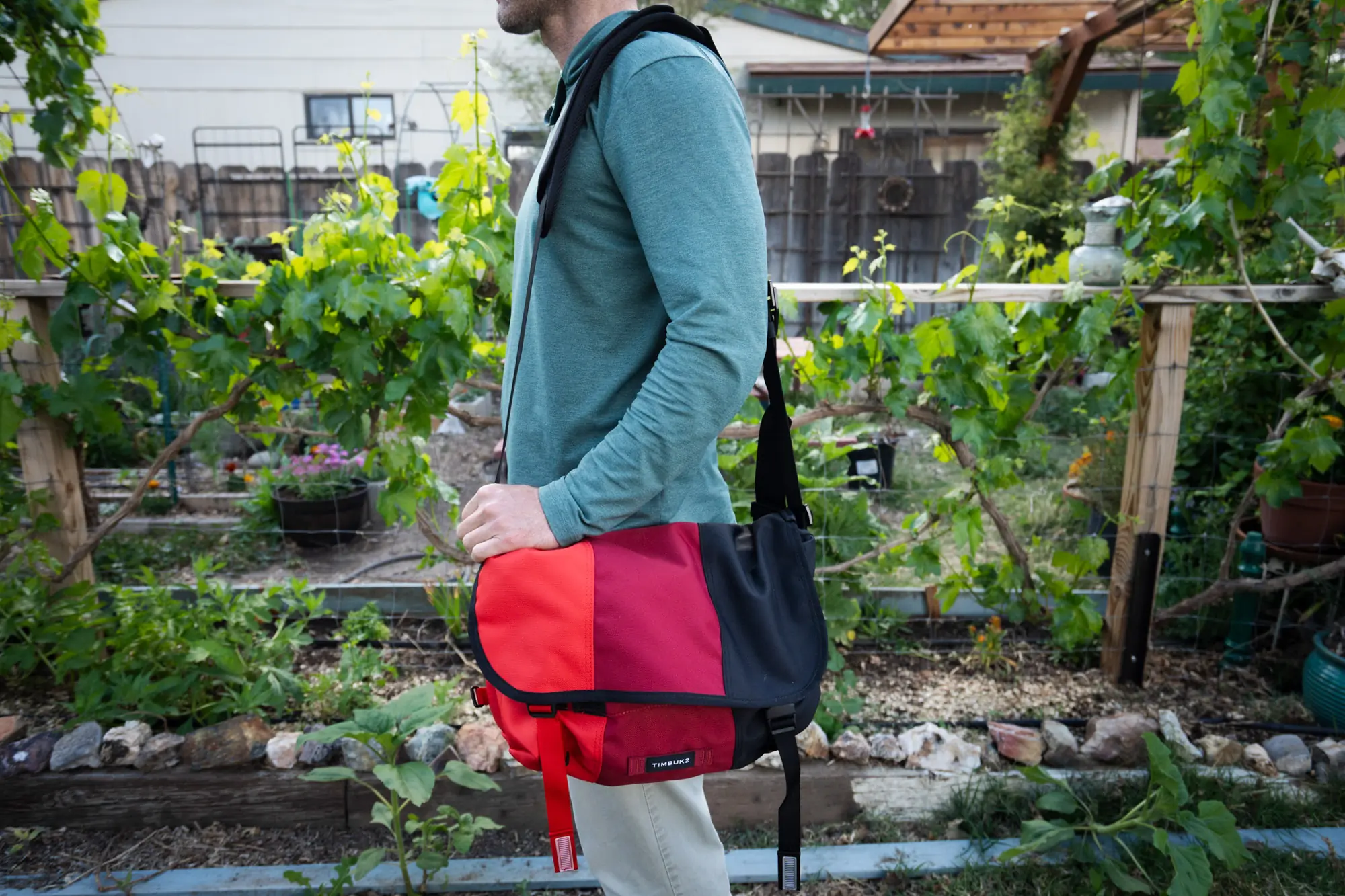



Shoulder Straps
Shoulder straps are an obvious component of the comfort category, and can really make or break an experience with a messenger bag. We appreciate wider, thicker straps with ample padding to provide cushion and help distribute weight more evenly.
The Mission Workshop Monty has the most comfortable shoulder straps we tested, with an optional sternum strap and a very satisfying, quick-adjust aluminum buckle on the front of the strap. In comparison, the Mission Workshop Khyte has a lesser quality strap, though you can switch it out with the Deluxe Messenger Strap for an additional $50. The Timbuk2 Classic is not overbuilt in any way and has a simple shoulder strap made with OrthoLite foam.
Organization and Size
When it comes to messenger bags, size matters. Too big, and you’ll overload it with stuff and wish you’d bought a backpack instead. Too small, and you’ll be bummed when it won’t fit much else other than your laptop. All of the bags in our review are between 10 and 24 L. The utility of a messenger bag, besides just a statement of style, is for quick access to the interior by swinging it in front of the body. So it has to be somewhat small and nimble.
Organization is also paramount, as you don’t want your small items to get lost inside a cavernous main compartment. And the best messenger bags will have some thoughtful organizational components to help you remember where everything is.
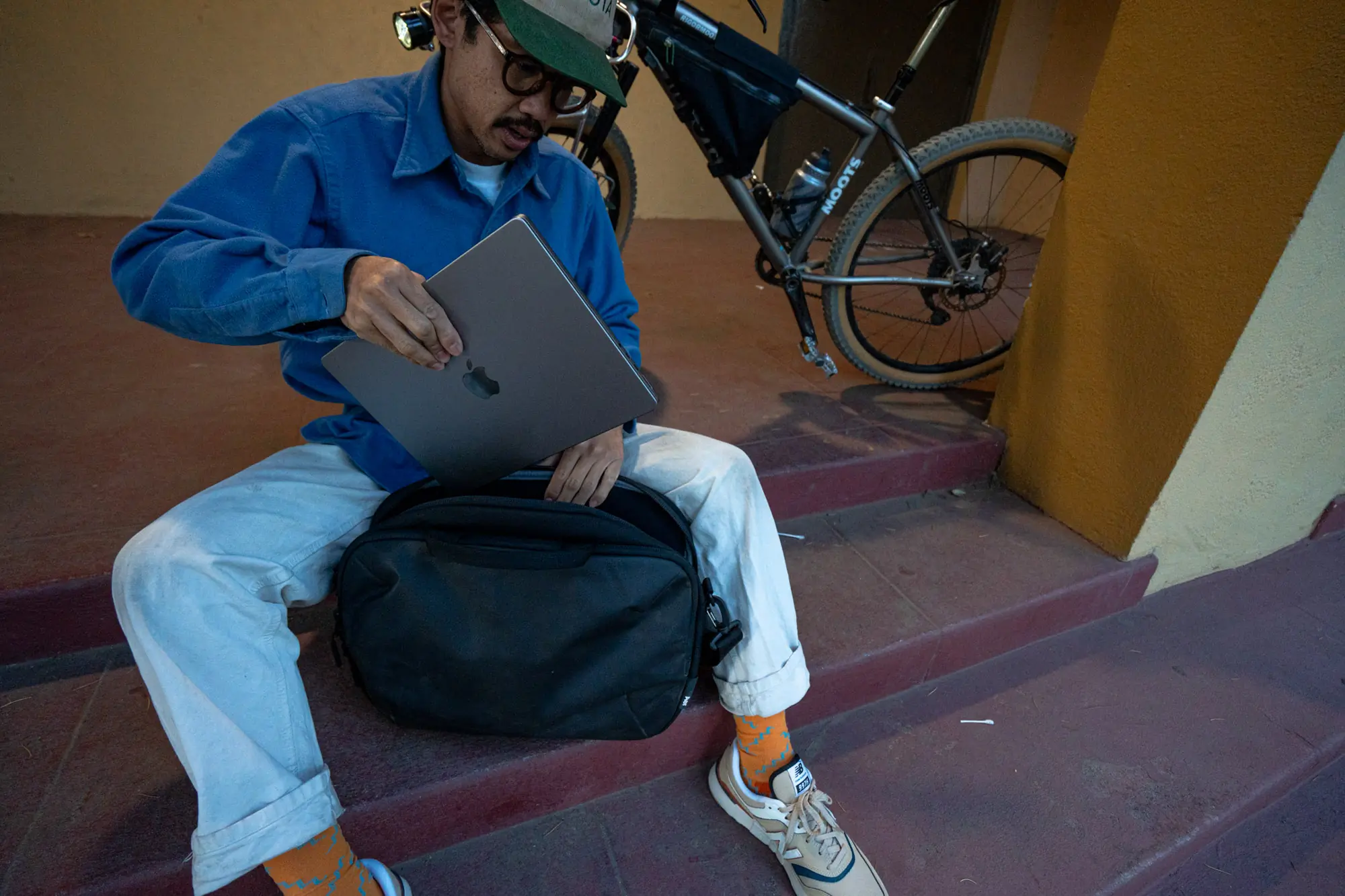



When selecting a messenger bag, especially if organization is a priority for you, here are some important features you might want to consider:
Multiple compartments: Look for a bag with multiple compartments of various sizes. This allows you to separate and organize your belongings efficiently, preventing items from getting lost or tangled.
Padded laptop compartment or sleeve: If you carry a laptop or tablet, a padded compartment is crucial to protect your device from bumps and scratches. You’ll want to ensure that the compartment is appropriately sized to accommodate your device.
Most messenger bags will fit smaller laptops of 11-14”, but you’ll have to make sure to double-check the dimensions if you have a bigger model. And if you’re on the fence about buying a messenger bag to carry your tech around, check out our review of laptop backpacks that might make for a more comfortable carrying experience.
Interior pockets and sleeves: Interior pockets and sleeves are great for organizing smaller items like pens, keys, and chargers. They keep these essentials easily accessible while preventing them from cluttering up the main compartment because there’s nothing worse than your keys getting tangled up in your charging cables.
Exterior pockets: Exterior pockets are handy for items you need quick access to, such as your phone, wallet, or water bottle. Look for pockets with secure closures like zippers or magnetic snaps to keep your belongings safe, or stretch pockets to accommodate an umbrella or water bottle.
Key clip or key ring: A key clip or ring inside the bag provides a designated spot to attach your keys, preventing them from getting lost in the bottom of the bag.
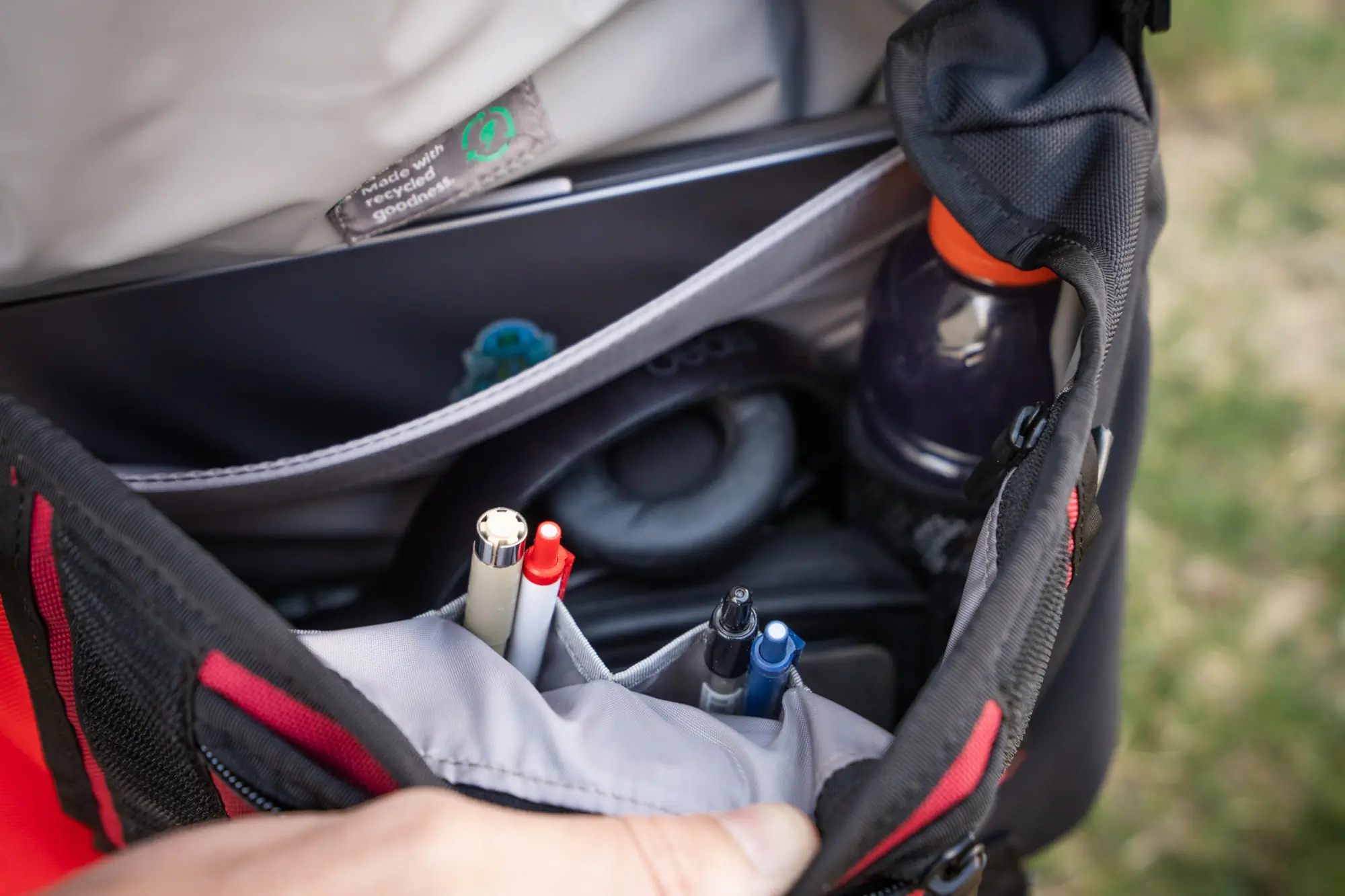



Electronics Protection
While what you carry around in your messenger bag will vary from person to person, it’s more than likely that you’ll be carrying around some electronics. Most messenger bags will come with some form of a laptop sleeve or dedicated compartment. It’s wise to look for ones that have padding for additional protection, like in the Aer Commuter Tech Brief or the Topo Designs Mountain Cross Bag.
The Mission Workshop Khyte has a dedicated waterproof laptop sleeve which provides some serious protection in case you get caught in some inclement weather on your commute. And we love that the Osprey Metron 18 also comes with a rain cover to really bring you peace of mind while you’re out and about.
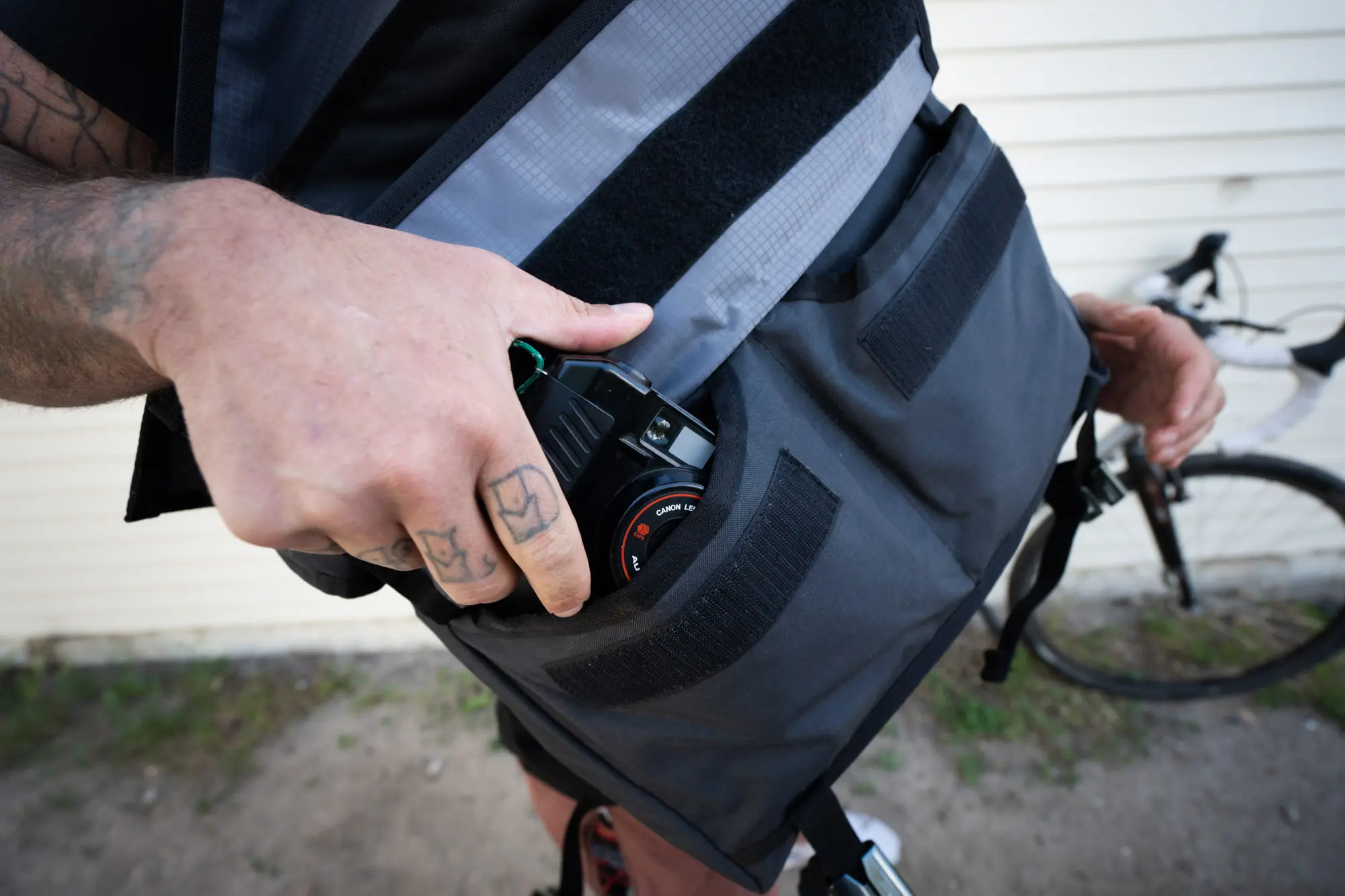



The Mission Workshop Monty is the only bag in our lineup that does not come with a dedicated laptop compartment, which is unfortunate. Though it is an overall well-constructed and rugged bag that will keep your items protected under its heavy-duty flap, and will just require you to have your laptop in a sleeve already.
We also wish that the Peak Design Everyday Messenger came with some weather protection because it is meant to hold multiple lenses and cameras, and could thus definitely use a rain cover or a beefier lid system. Though, we also rounded up some of the best camera bags if you’re looking to compare this specific kind of bag.
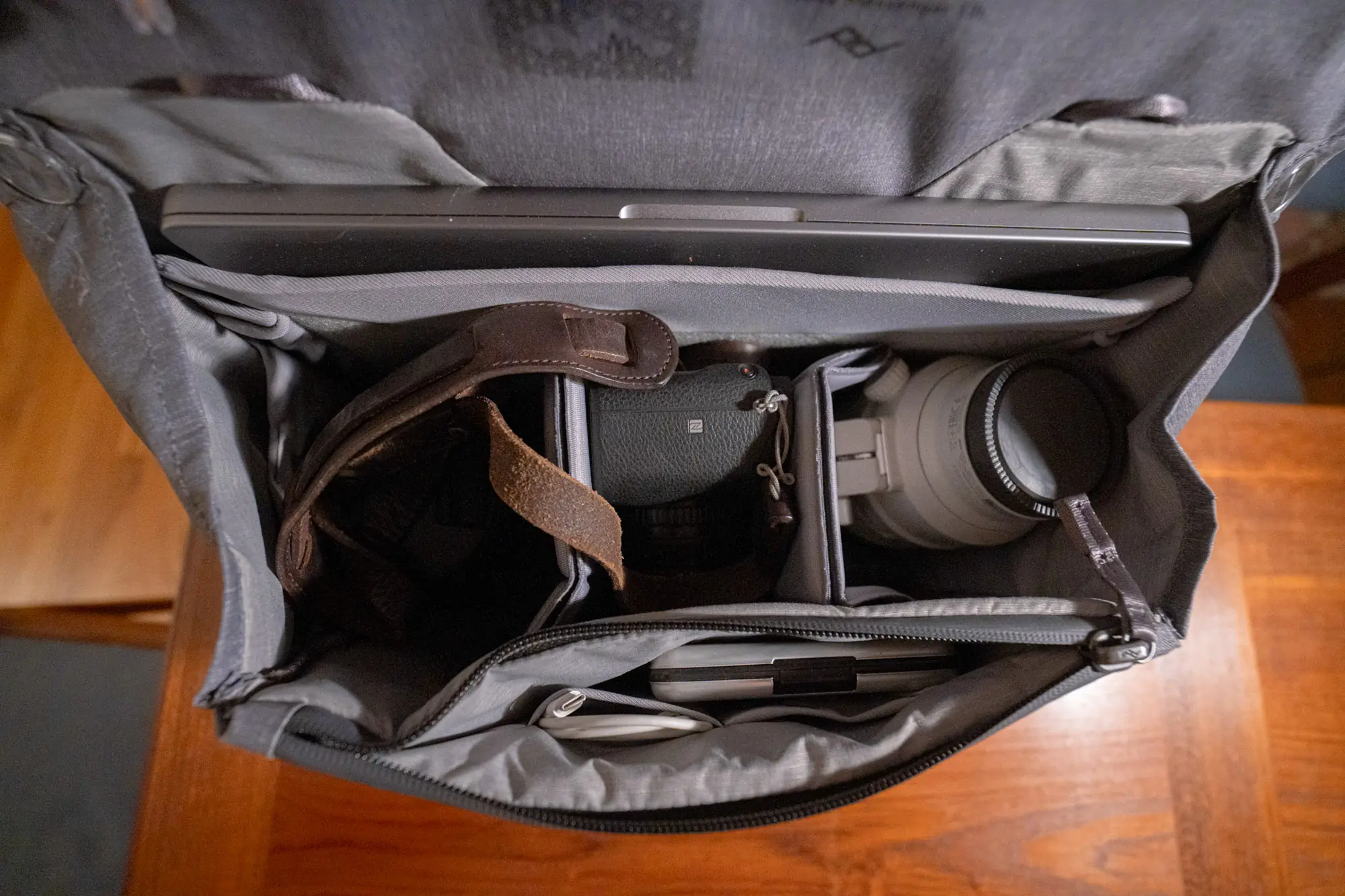



Design and Materials
When you’re looking for your next messenger bag, make sure to check out the materials and overall quality to ensure you’re getting something that’ll last. Nylon and polyester are lightweight and hold up well against the elements. All of the bags in our review are made of some sort of nylon. Other classic messenger bags can be made with canvas or leather, and portray a different style if that’s something you’re looking for.
The Timbuk2 Classic, Closer, Peak Design Everyday Messenger, Topo Designs Mountain Cross Bag, and KÜHL Eskape Messenger are all made with recycled materials as a bonus. It’s always good to look for material with a DWR finish, which stands for durable water repellant and is a coating that makes the fabric more water resistant.
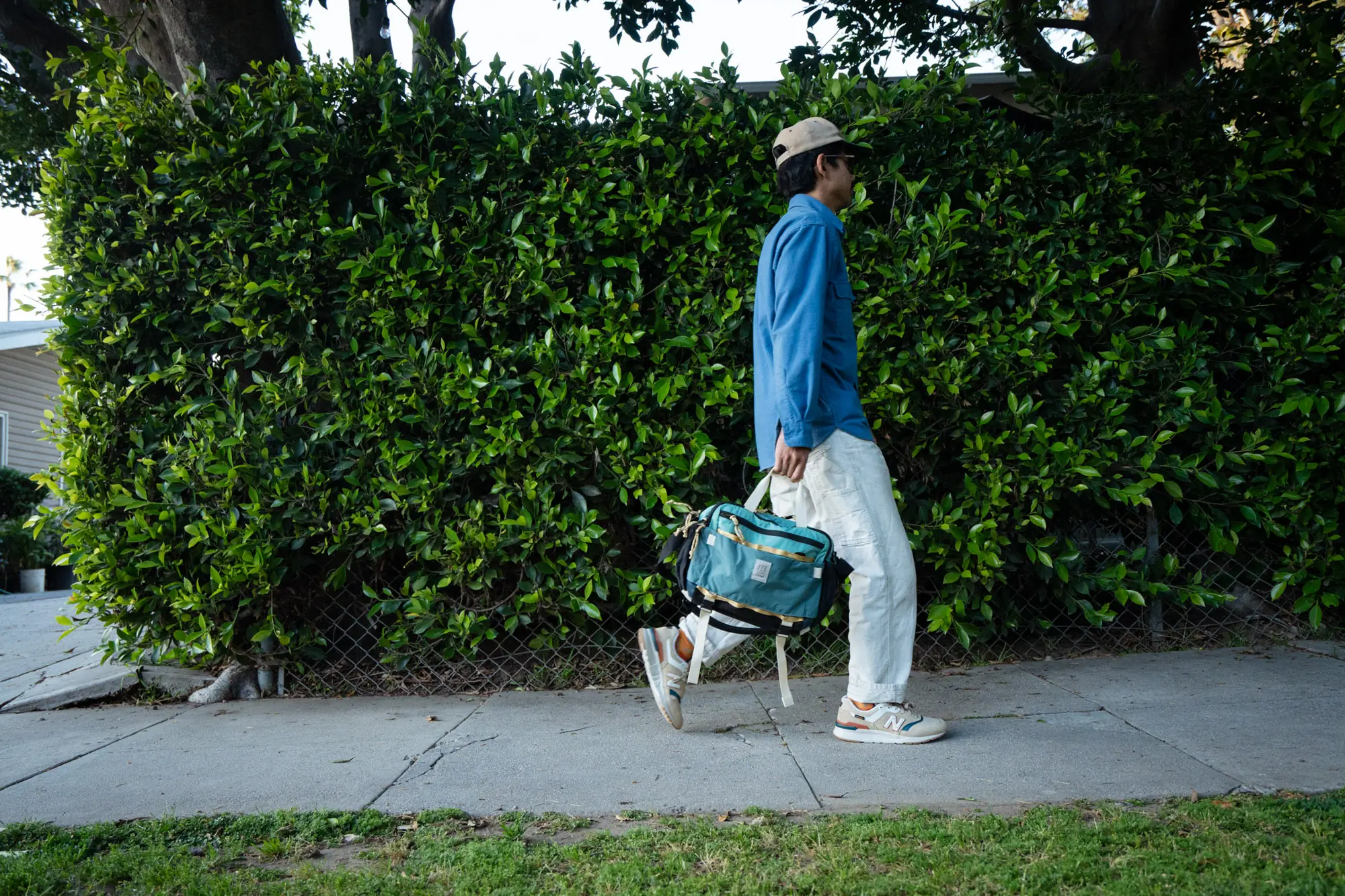



You can also pay attention to the denier of the fabric, which is a unit of measurement that indicates the thickness of the fabric’s individual threads and, thus, its overall durability. The Mission Workshop Monty has the highest denier fabric in our review, made with 1000-denier Cordura. Some other bags, like the Peak Design Everyday Messenger and the Osprey Metron 18, are made with 400-500-denier fabric which is still a testament to their quality and is plenty durable enough for daily use.
Once you’ve got the material down, take a look at the stitching and hardware. You want stitches that can handle your load without popping, especially around stress points like the straps. The KÜHL Eskape Messenger is reinforced in high-abrasion areas, and the Aer Commuter Tech Brief has 1680D Cordura ballistic nylon side exteriors.
And those buckles, zippers, and clasps? They should be smooth operators that give you easy access while keeping your stuff secure.
Lastly, it’s always good to give the bag a once-over for craftsmanship. You want clean seams, tight stitching, and all the pieces lining up just right. Loose threads or wonky seams might be a sign of shoddy construction that’ll leave you hanging down the road.
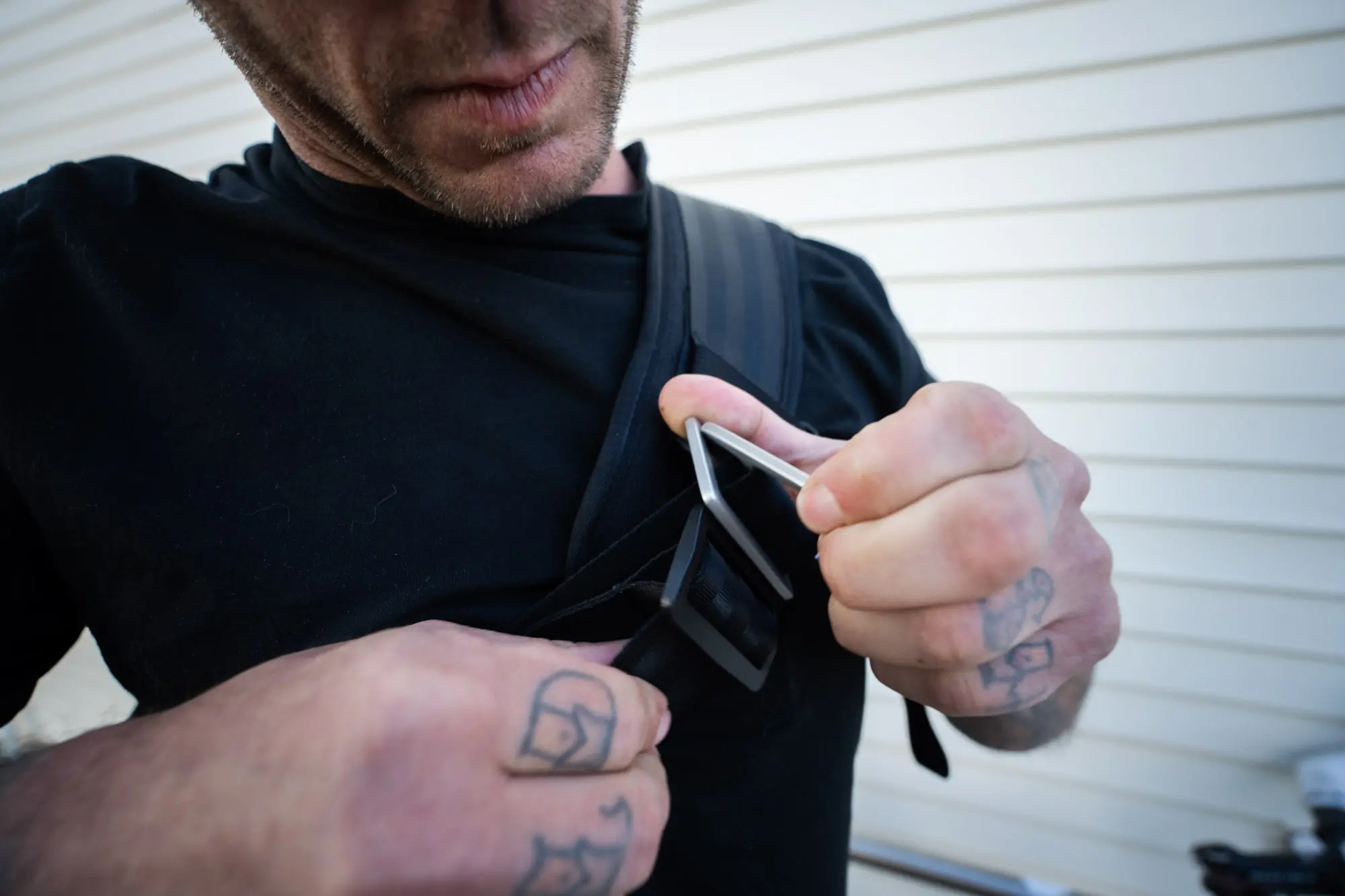



Weather-Proofing
Whether you’re dodging raindrops on your daily commute or trekking through unpredictable weather, you want a bag that can keep your gear dry. Look for materials like nylon, polyester, or treated canvas that offer water-resistant or waterproof properties like the aforementioned DWR found on the Osprey Metron 18 and Peak Design Everyday Messenger.
Sealed seams and water-resistant zippers are also must-haves to keep moisture from sneaking in through the cracks, as found on the burly KÜHL Eskape Messenger. And if you really want to go the extra mile, some bags like the Osprey Metron 18 come with rain covers or built-in waterproof linings for added protection when the skies open up.
When you’re shopping for a messenger bag that can stand up to the elements and go the distance, keeping an eye out for weatherproofing features and durable construction ensures you’re investing in a bag that’s ready for whatever adventure comes your way.
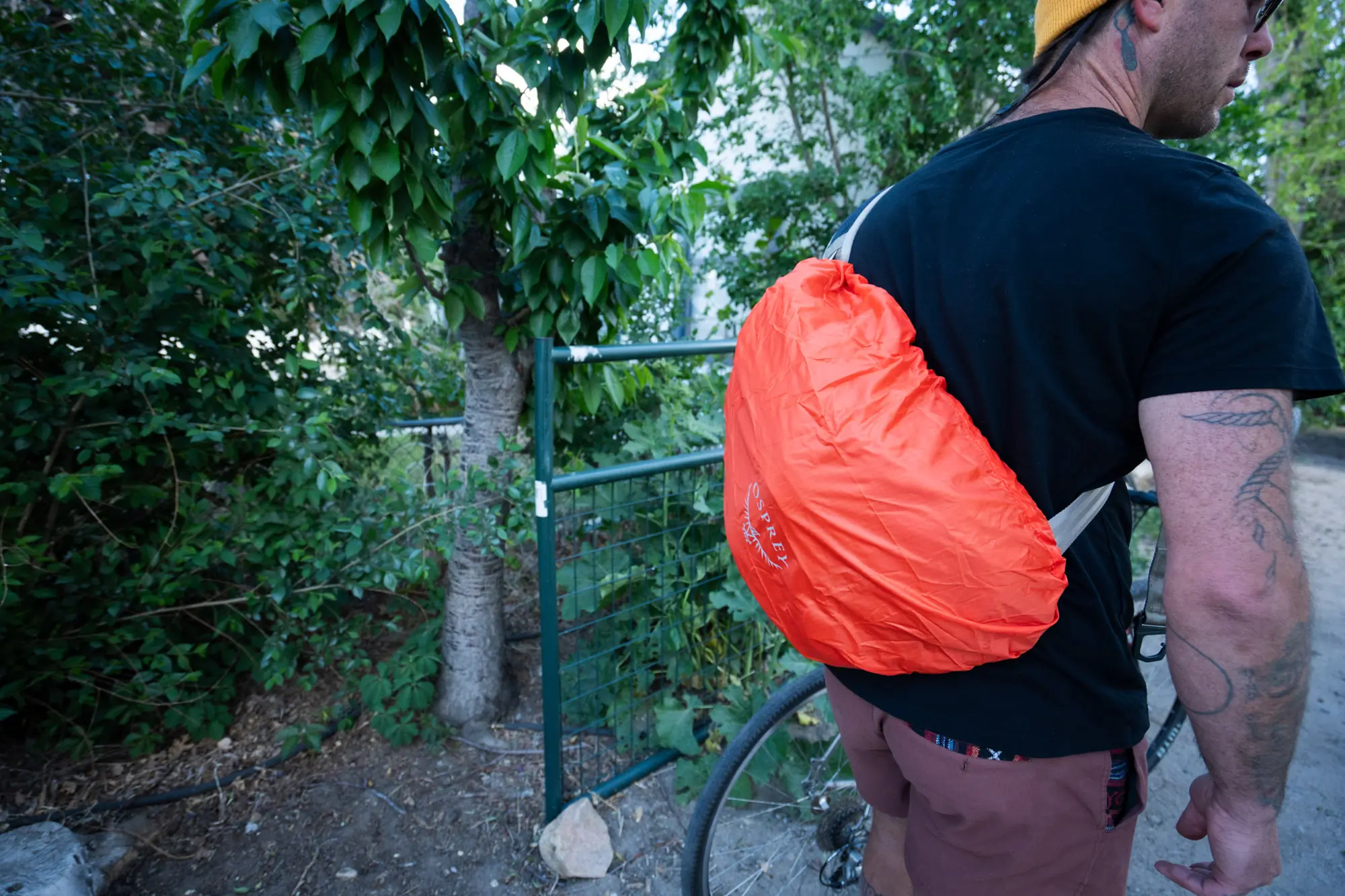



Price & Value
Budget
Messenger bags come in a wide range of prices, catering to different budgets and preferences. At the lower end of the spectrum, you can find affordable options starting from around $20-50. Though not covered in this review, you can find bags in this price range, and these budget-friendly bags often feature basic designs and materials like nylon or polyester, with fewer organizational features and less durable construction.
While they may lack some of the bells and whistles of higher-priced options, they can still serve as functional carryalls for everyday use, making them a solid choice for those on a tight budget or looking for a simple solution. Our best budget pick is a bit more at $75, but we think the Carhartt Messenger Bag is an undeniable bargain.
Mid-Tier
In the mid-range, messenger bags typically range from $50 to $150, which make up the bulk of the bags in our review. These bags strike a balance between affordability and quality, offering a wider variety of materials, styles, and features to choose from.
You’ll find options made from durable fabrics with water-resistant properties, like the Osprey Metron 18 Messenger ($120), with more organizational compartments, padded laptop sleeves, and reinforced stitching for added durability.
Although they may require a bit more upfront investment, these mid-range bags often provide better value in terms of longevity and functionality, making them a popular choice for those seeking a reliable everyday carry, a great bike commuter companion, or a sleek briefcase for the office. We think that the $130 Timbuk2 Classic is just about the best messenger bag for most folks available today.
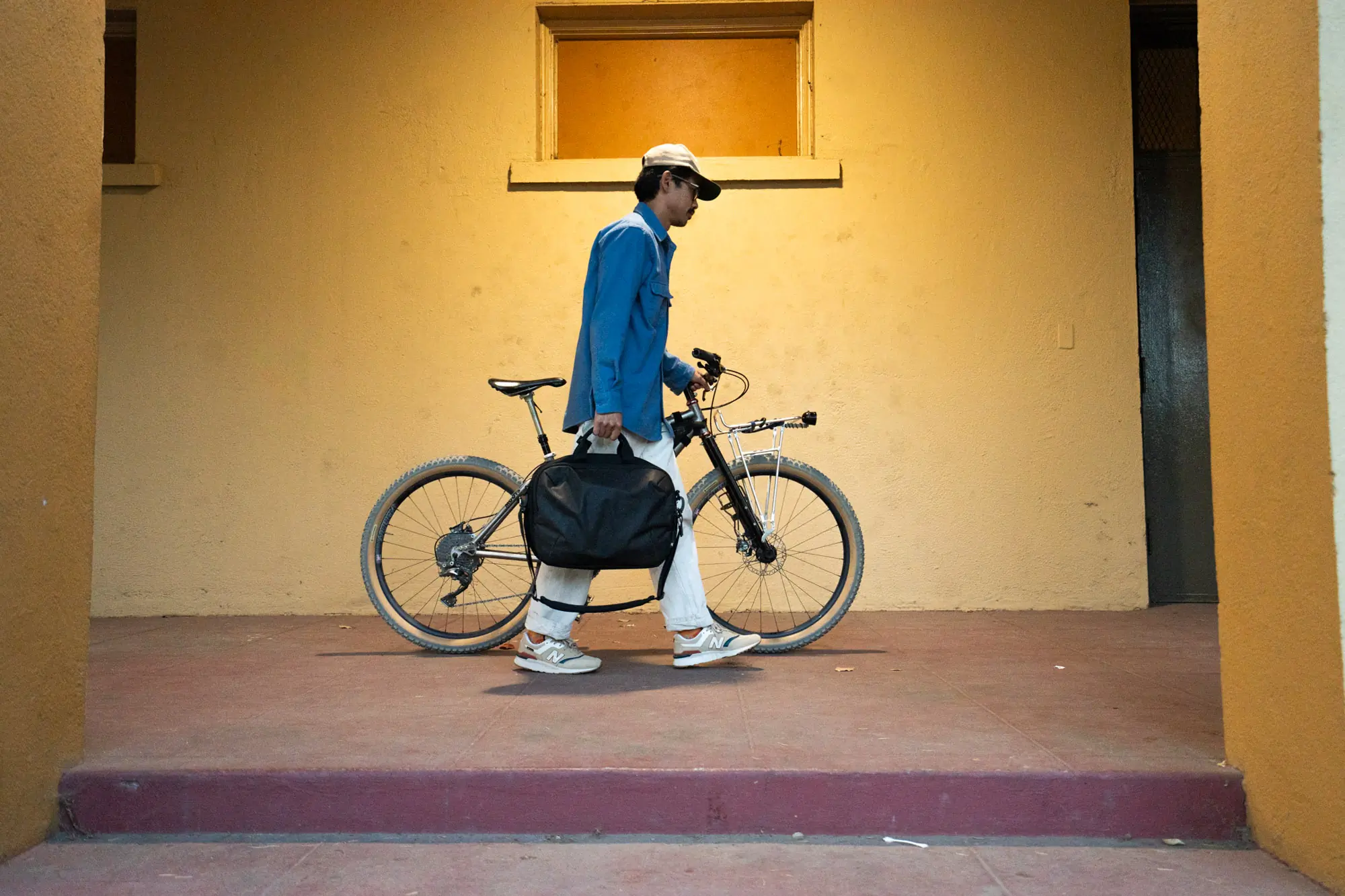



Premium
At the higher end of the price spectrum, messenger bags can range from $150 to $400 or more. These premium bags can be crafted from high-quality materials like 1,000-denier nylon fabric, or, though not covered in this review, full-grain leather or waxed canvas. These bags will have meticulous attention to detail and superior craftsmanship.
The Mission Workshop Khyte, at $390, is the most expensive bag in our review, with its two-layer waterproof construction and premium buckles and zippers. While the initial cost may be steep, these top-tier messenger bags offer unparalleled durability, style, and functionality, making them a worthwhile investment for those who demand the best.
Ultimately, the price you pay for a messenger bag depends on your budget, needs, and personal preferences. While budget-friendly options can provide a cost-effective solution for basic carrying needs, investing in a higher-priced bag can offer better quality, durability, and features that enhance your everyday carry experience. Whether you’re looking for a simple and affordable option or a premium bag that combines style and functionality, there’s a messenger bag out there for you.
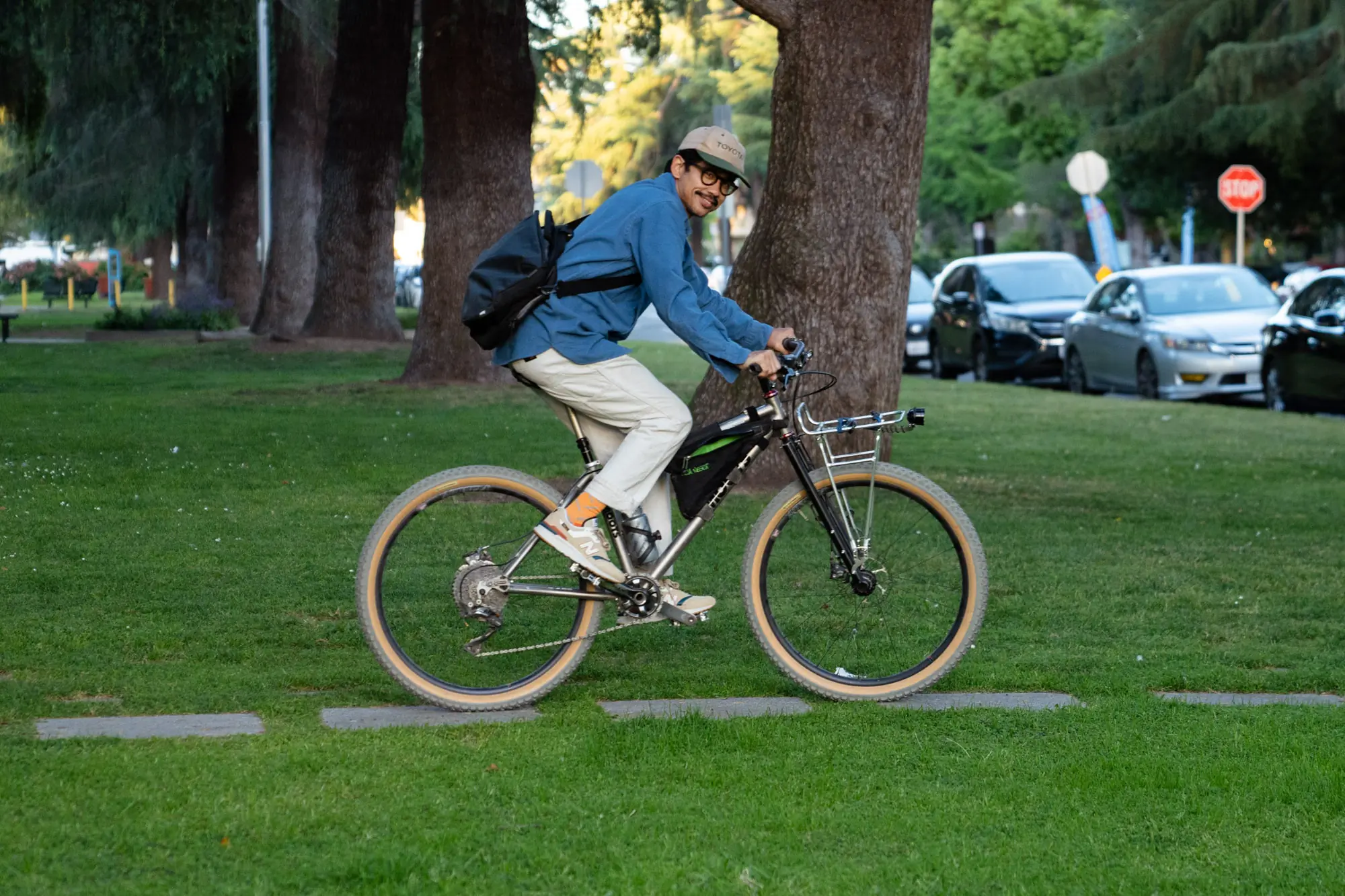



Frequently Asked Questions
It’s worth emphasizing that messenger bags can distribute weight unevenly, as they are typically worn over one shoulder, which can lead to strain and discomfort, especially if you’re carrying heavy loads for extended periods. The asymmetric distribution of weight may also cause postural issues over time, such as uneven muscle development or strain on one side of the body.
Firstly you want to make sure you know what kind of strap is on the bag you have chosen. If it’s a classic messenger style, you’ll wear the bag higher up on your back and will likely want a close-to-body fit, pulling the shoulder strap tight across your chest. If it comes with a regular shoulder strap, which causes the bag to hang at your hip, you can choose to wear it crossbody or on one shoulder and adjust the strap to your height and comfort level.
Try to distribute the bag’s weight evenly across your body by adjusting the strap length and positioning the bag securely against your side. Avoid overloading the bag with heavy items, as this can cause strain on your shoulder and back over time.
Some messenger bags come with a stabilizing strap or waist belt that helps distribute weight more evenly and prevents the bag from shifting while you move. If your bag has one, use it to enhance comfort and stability.
Throughout the day, periodically adjust the strap length and position of the bag to ensure continued comfort and support. Listen to your body and make adjustments as needed to prevent discomfort or strain.
While messenger bags offer certain advantages, they may not necessarily be superior to backpacks in all situations, especially if you are carrying heavier loads. But there are a few reasons why people might prefer messenger bags over their two-strap cousins.
Accessibility: Messenger bags typically feature a flap or quick-release buckle design that allows for easy access to the bag’s contents without needing to remove it entirely. This can be convenient for quickly retrieving items like laptops, notebooks, or documents, especially in a work or commuting environment.
Style: Messenger bags often have a sleek and professional appearance that appeals to individuals who prefer a more urban or sophisticated look. They can be suitable for work, school, or casual outings, adding a touch of style to your look.
Mobility: Messenger bags are worn across the body, which can offer greater mobility and freedom of movement compared to backpacks, particularly in crowded or tight spaces. The single shoulder strap allows for quick and easy adjustment, making it convenient for activities like biking or navigating public transportation.
While messenger bags offer these advantages, it’s important to consider the potential drawbacks as well, such as uneven weight distribution, limited storage capacity, and the potential for shoulder or back strain with heavy loads. Ultimately, the best choice between messenger bags and backpacks depends on individual preferences, needs, and comfort preferences.
Historically, satchels have a long history dating back centuries, originally used by messengers, postal workers, and travelers to carry letters, documents, and other items. Over time, satchels evolved into fashionable accessories associated with academia and business attire.
In contrast, the modern messenger bag gained popularity in the 1980s and 1990s as a practical and stylish accessory for urban commuters and students, inspired by the bags used by bike messengers and couriers in urban environments.
Overall, while both satchels and messenger bags serve similar purposes as shoulder bags for carrying personal items, they cater to different preferences and needs, offering distinct styles, functionalities, and historical backgrounds.
When choosing the right size for a messenger bag, which can range from anywhere between 10 and 24 liters in the case of our review, there are several factors you should think about before pulling the trigger.
You’ll want to double-check the size of your laptop, as many messenger bags have different carrying capacities for laptops.
Then think about the volume of items you typically carry. Look for a bag with enough compartments and pockets to keep your belongings organized, including essentials like notebooks, water bottles, keys, and wallet.
Lastly, consider how you’ll most likely be using the bag. For work or commuting, opt for a size that can accommodate documents and other work-related items. If you plan to use it for travel or outdoor activities, you may need a larger bag to carry extra clothing, snacks, a camera, or other gear.
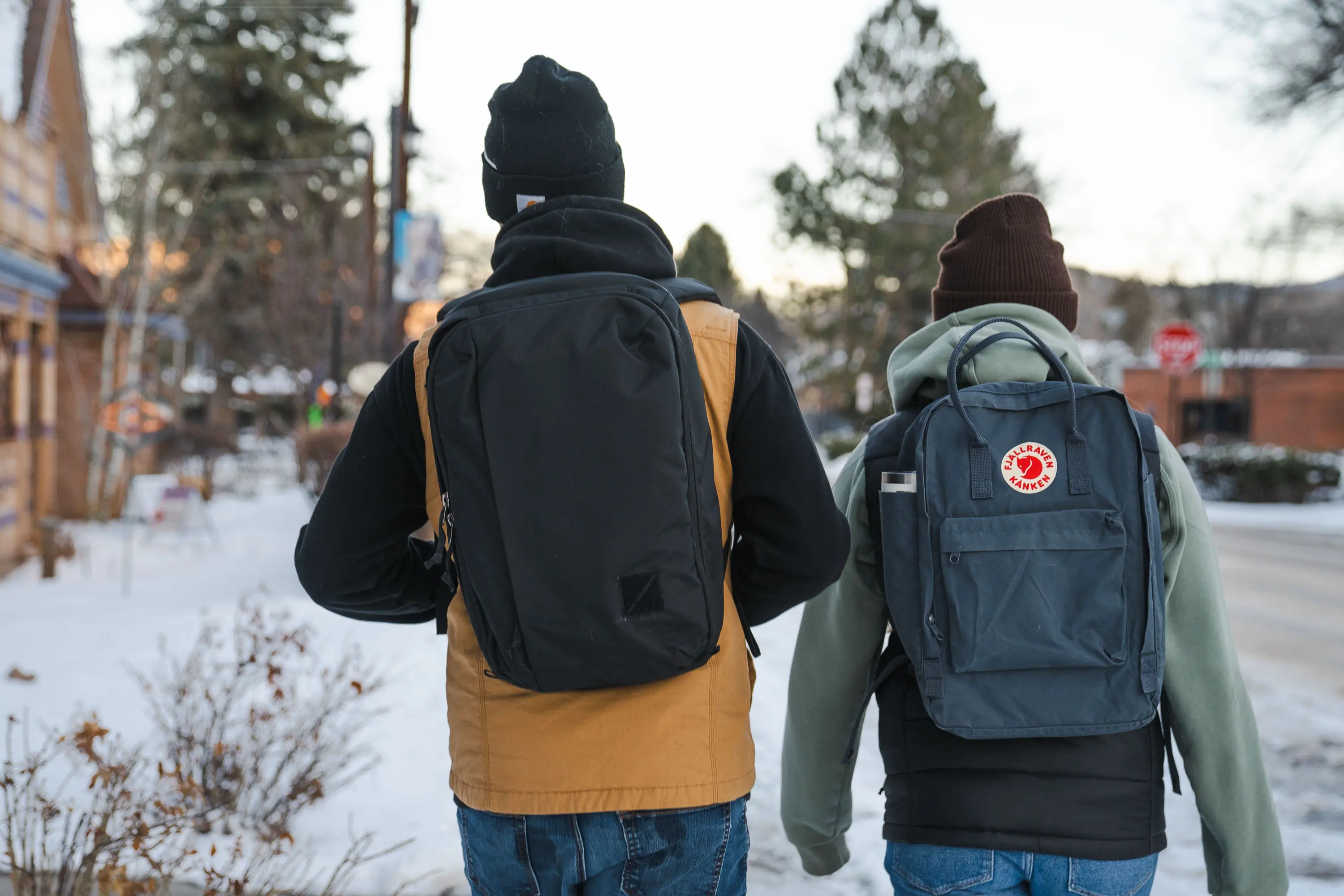

The Best Laptop Backpacks of 2025
Whether you’re headed to the office, class, or even the trailhead, here’s our top picks for the best laptop backpacks of 2025.
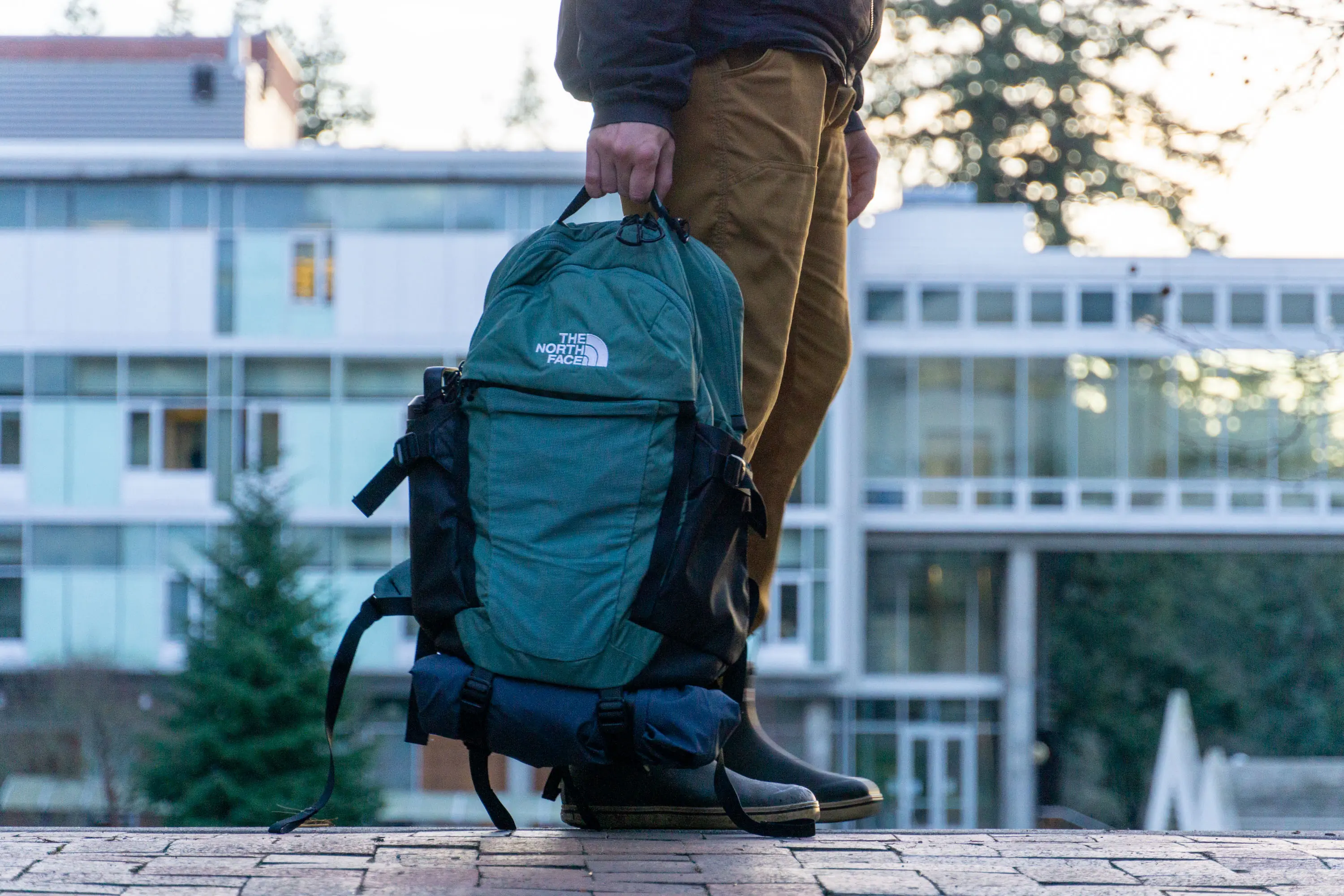

The Best Backpacks of 2026
After shouldering the best — along with the rest — we’ve found the greatest backpacks for any task.
